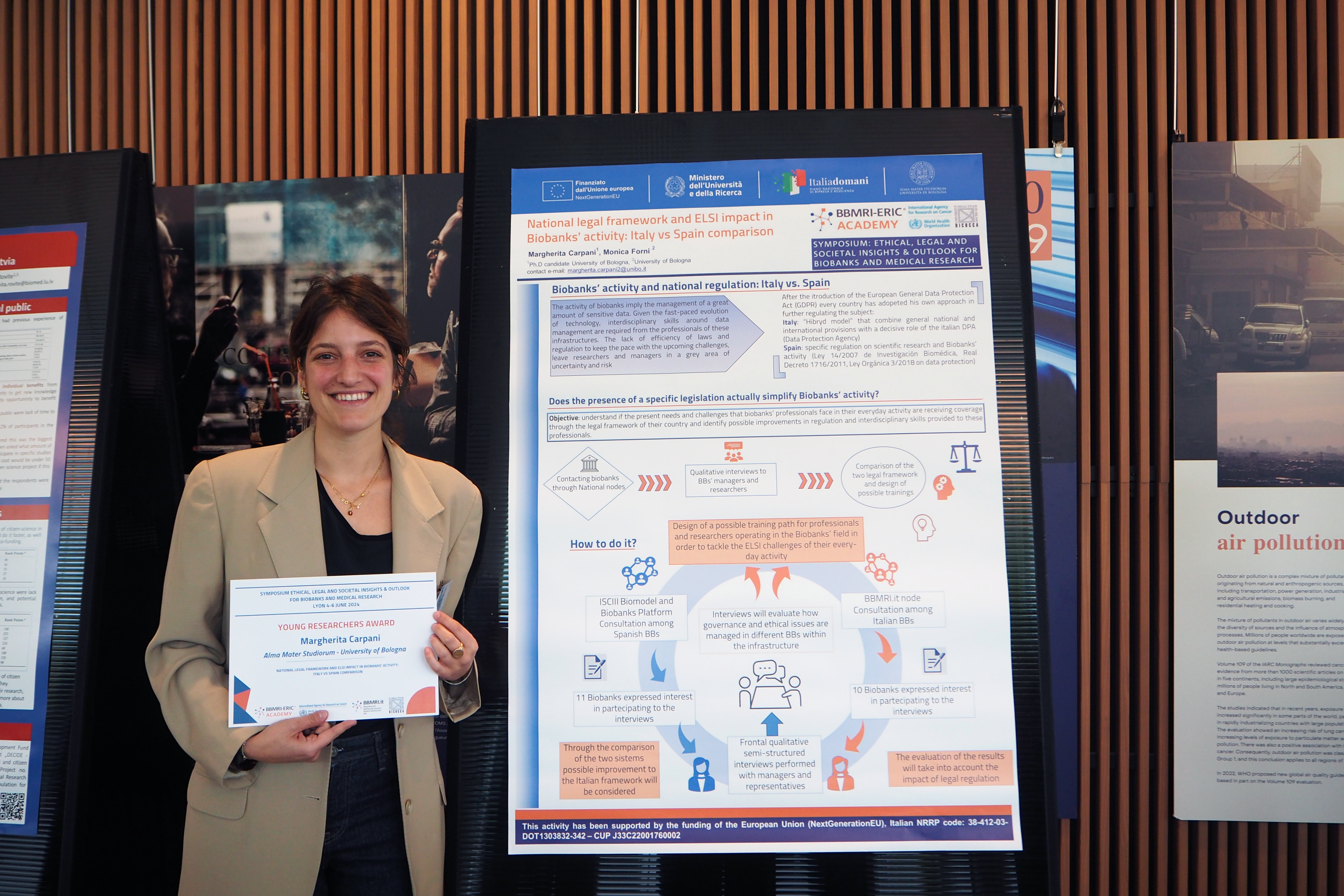BBMRI-ERIC ACADEMY
1ST ELSI SYMPOSIUM: ETHICAL, LEGAL AND SOCIETAL INSIGHTS AND OUTLOOK FOR BIOBANKS AND BIOMEDICAL RESEARCH
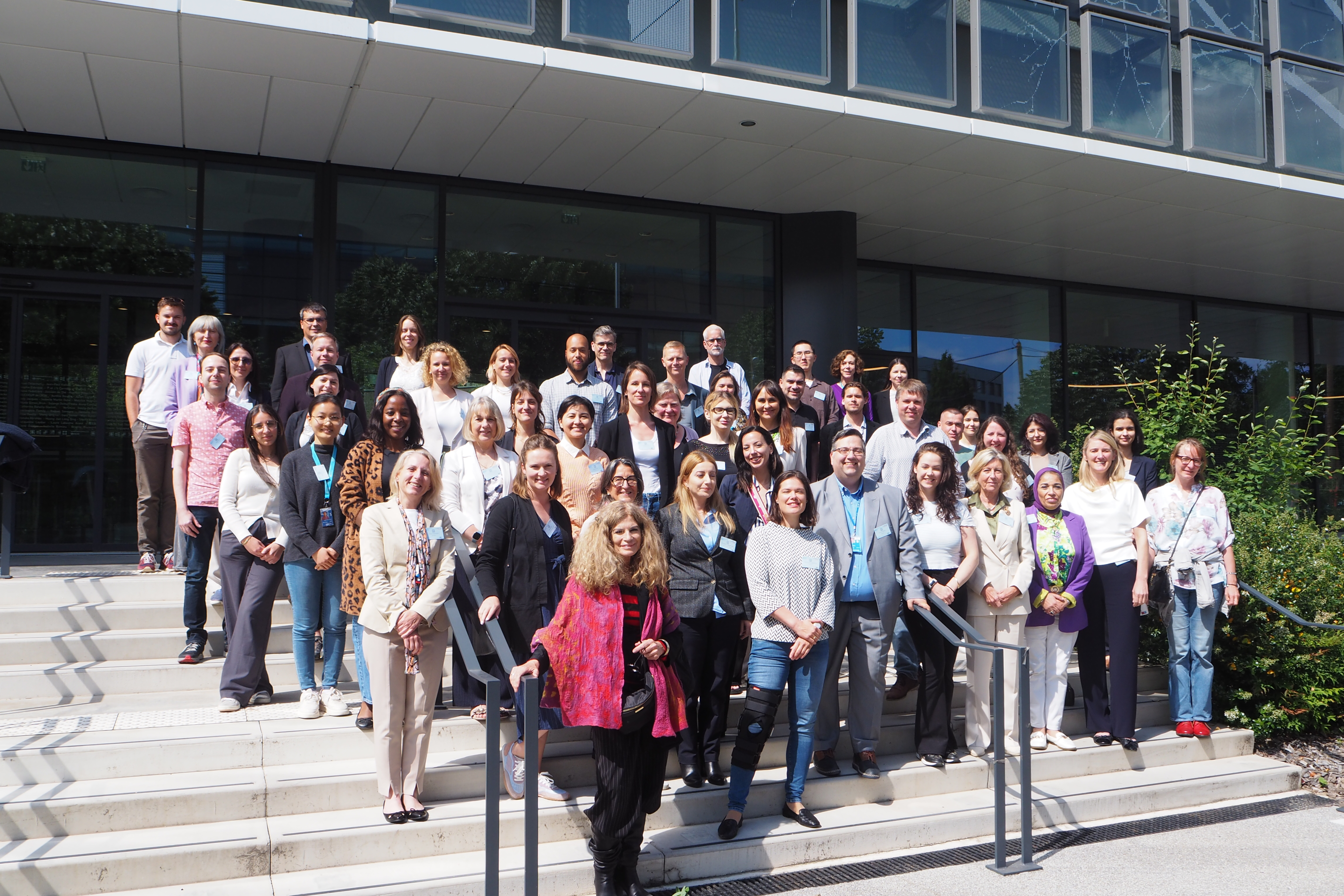
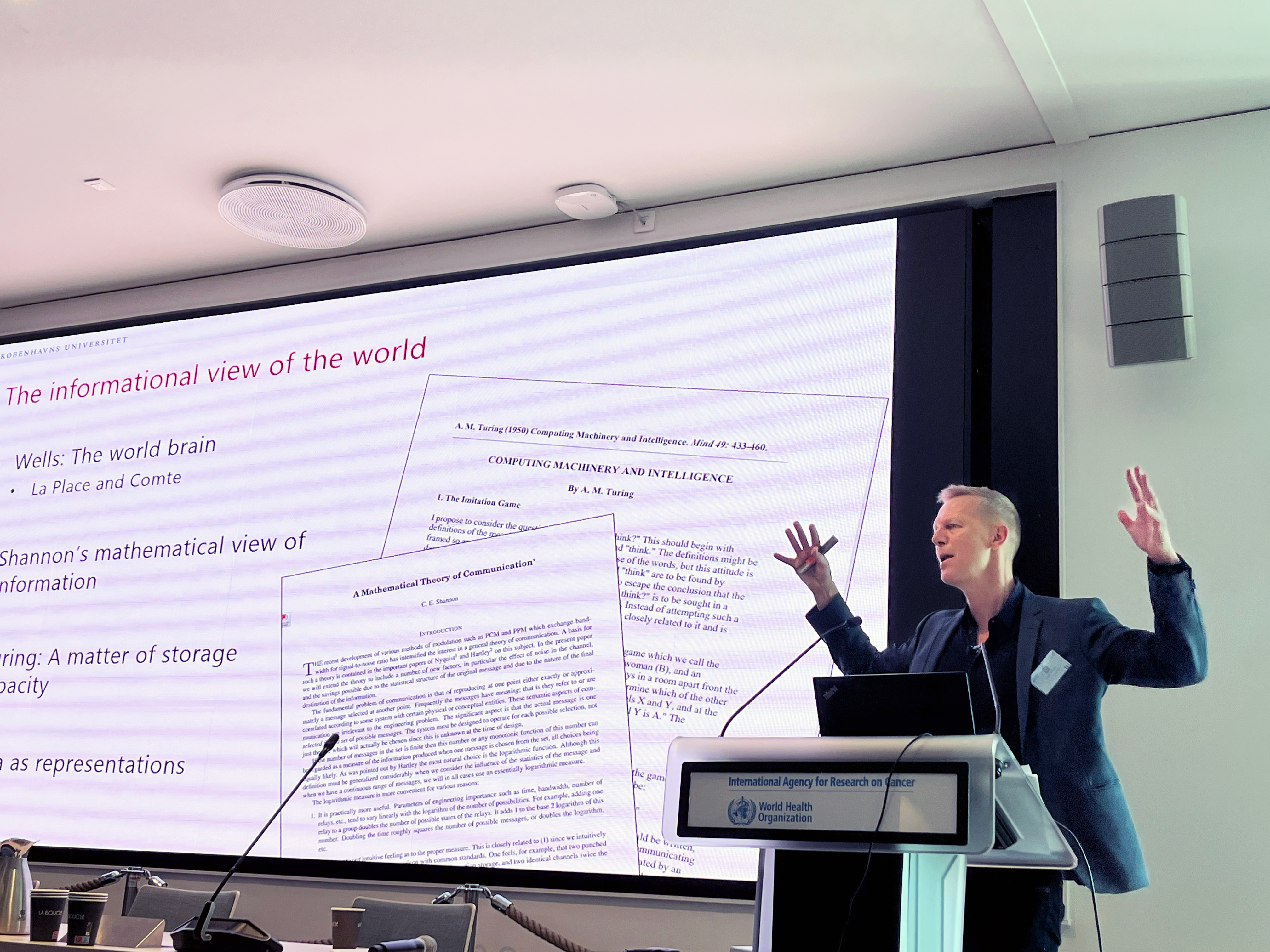
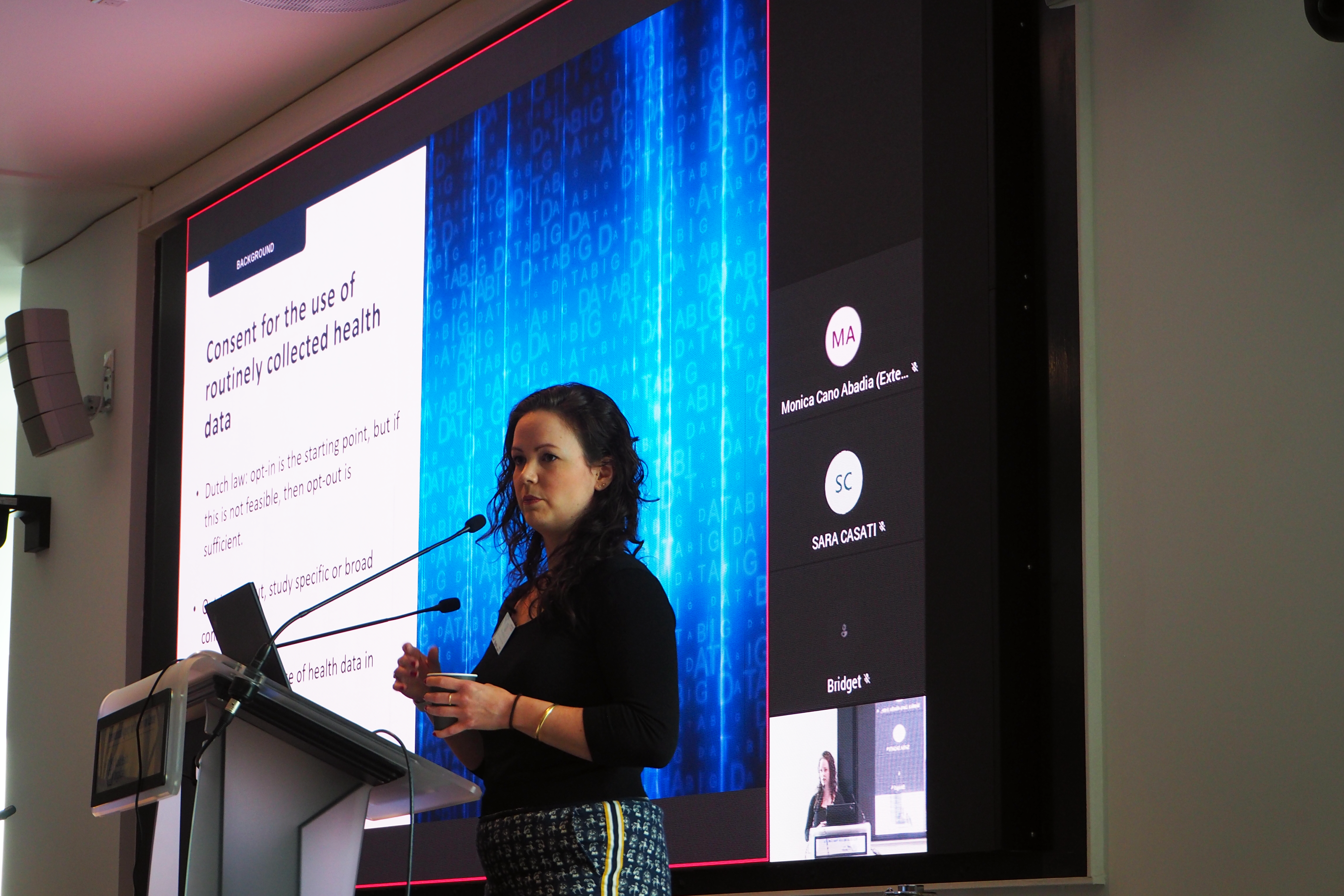
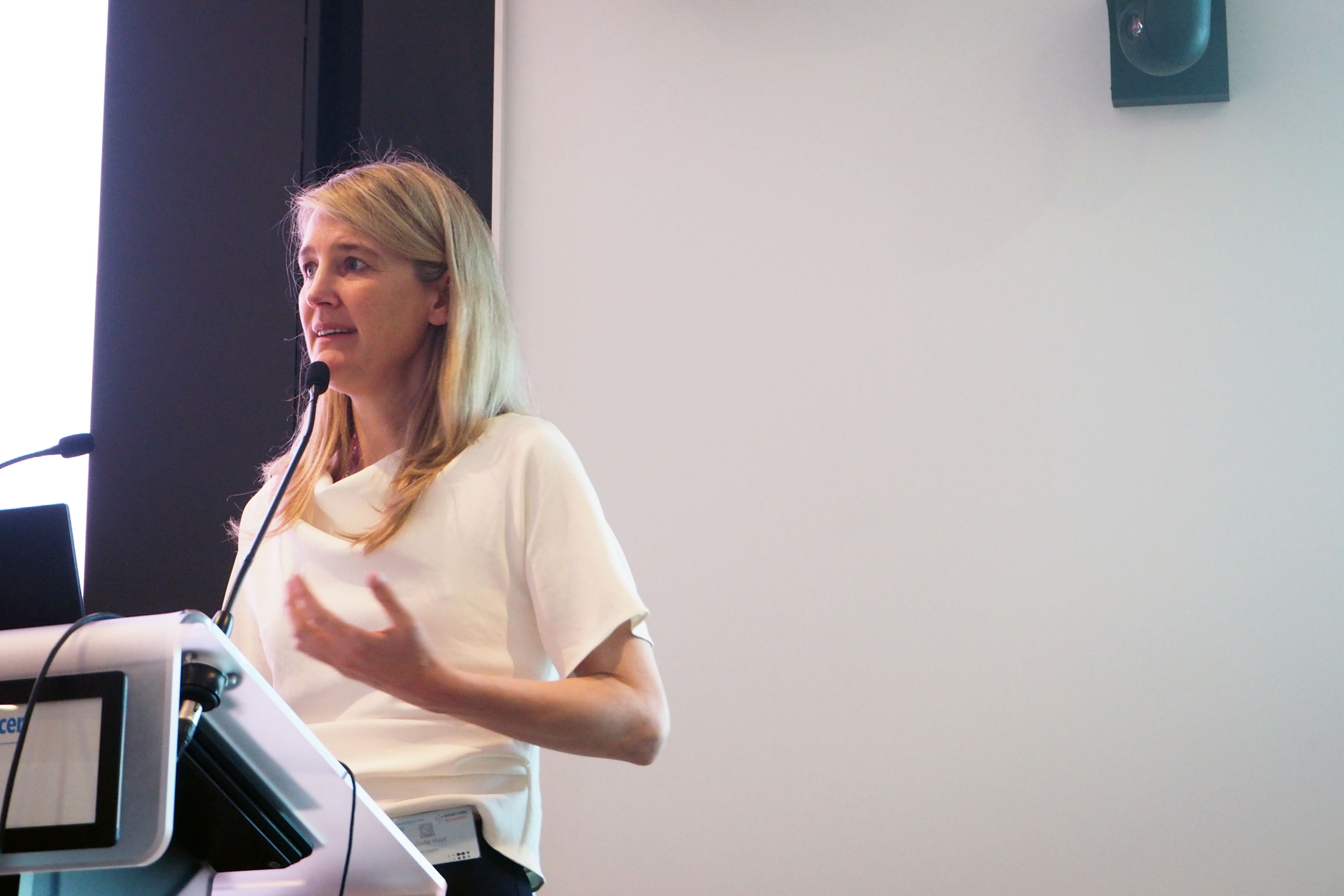
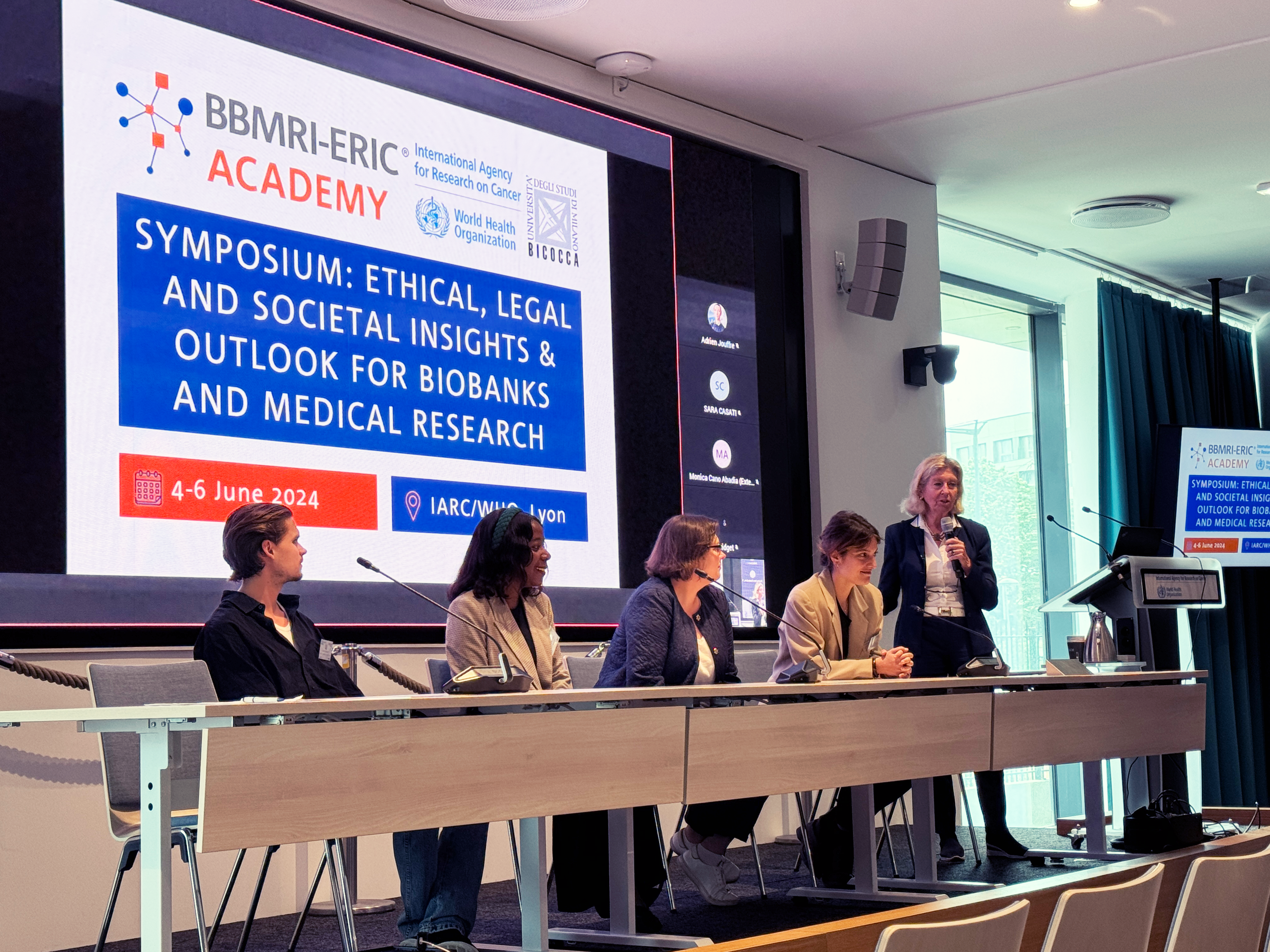
The BBMRI-ERIC, UNIMIB and IARC organised Symposium “Ethical, Legal and Societal Insights & Outlook for Biobanks and Medical Research” was held at the headquarters of the International Agency for Research on Cancer (IARC) in Lyon, France from June 4th to 6th 2024.
Over the course of two and a half days, the symposium featured seven keynotes and 30 unique presentations, offering cutting-edge perspectives on ethical, legal, and societal implications (ELSI) relevant for biobanks and biomedical research.
The event celebrated the diverse range of ELSI expertise across different countries and disciplines, encompassing interdisciplinary services and research areas such as GDPR compliance, genetic counselling, science and technology studies, ethics, or social sciences.
Whereas the ELSI experts across BBMRI’s National Nodes have been meeting annually over the past decade, this meeting was the first public symposium bringing together 80 participants from around the globe for an in-depth exchange.
Structured into eight sessions, the ELSI Symposium addressed a wide range of topics, including data privacy, European Health Data Space (EHDS), ethics of AI, genetics and genomics, gender, governance, regulatory compliance or datafication.
It closed with the Young Researchers Awards for presentations and a poster, reaffirming the commitment to making such gatherings a regular event.
“The preparatory phase of BBMRI already included from 2008 a very active ELSI contribution. The creation of the ELSI Common Service (ELSI Services and Research) was the first service of BBMRI-ERIC and the first of its kind among the European life sciences infrastructures that has been an innovative and complex journey.
"I am proud of having been one of its driving forces, and happy to witness the continuing dynamism of the BBMRI-ERIC ELSI team anchored in its two pillars of services and research.
"As it continuously relies on an exemplary interdisciplinarity and remarkable sense of dialogue, I wish it a bright future and hope its international dimension will be strengthened in the coming years. This academy was a bright initiative!”
Anne Cambon-Thomsen (University of Toulouse) - former Director of the Common Service ELSI
“Milano Bicocca university has been a strong believer in and has contributed enthusiastically to developing the BBMRI-ERIC ELSI Common Service (ELSI Services and Research) from its inception, aiming for a service that promotes responsible research and innovation within the biobanking community, involving all the players.
"This approach emphasises the importance of community engagement and collaboration in rethinking research based on samples and data.
"The goal is to empower not only citizens but also clinicians who are at the forefront of proposing biobanking initiatives. This involves engaging multiple stakeholders and working towards transforming biobanking into an ethical and sustainable practice that meets the needs of society, both now and in the future...
“As we mark our ten-year milestone, we pause to acknowledge the pivotal role of young researchers, experts, and citizens in shaping the future of collaborative research. The contributions of the younger generation are not just important, they are essential for the advancement of this research ecosystem.
"In Lyon, we honoured these young researchers with awards, a small token of our appreciation for their significant role in addressing the multidisciplinary, pluralist, and health-related challenges facing humanity and all living beings, including our planet.”
Marialuisa Lavitrano (UNIMIB) - co-organiser
“The BBMRI-ERIC ELSI team comprises an interdisciplinary network of experts from the social sciences, bioethics or law across our 26 member states. For a decade, we have met annually to exchange on practices of today and identify the ethical, legal and societal topics of tomorrow.
"In 2024, we decided to extend the format to an international symposium that brought together 80 attendees from across the globe, highlighting that ethical, legal, and societal implications (ELSI) require constant attention. They cannot be tick-boxed. Rather, they need to be identified and addressed in context.”
Michaela Th. Mayrhofer (BBMRI-ERIC) - co-organiser
“Addressing ELSI aspects in international research fosters global trust, promotes equitable and just research practices, and safeguards the rights and well-being of all participants involved, respecting diverse cultural norms.
"The meeting at IARC/WHO in Lyon, in collaboration with the BBMRI-ERIC Academy and Milano Bicocca University, has demonstrated the importance of legal requirements, and ethical standards across different countries. Several interesting discussions emerged throughout the two and a half days, on how to protect the rights and privacy of participants, fostering trust and cooperation among international communities and stakeholders ensuring that studies are conducted responsibly. The setting at IARC/WHO provided a fitting international backdrop to the symposium.”
Zisis Kozlakidis (IARC/WHO) - co-organiser - centre in the photo
The symposium was co-organised and co-funded by the ELSI Services & Research department of the Pan-European research infrastructure for biobanks and biomolecular resources (BBMRI-ERIC), the International Agency for Research on Cancer (IARC), the specialised cancer agency of the World Health Organization (WHO) and the University of Milano-Bicocca (UNIMIB). In addition, it is supported by BCNet and received funding from the European Union’s Horizon Europe research and innovation programme under grant agreement number 101058620 (canSERV).
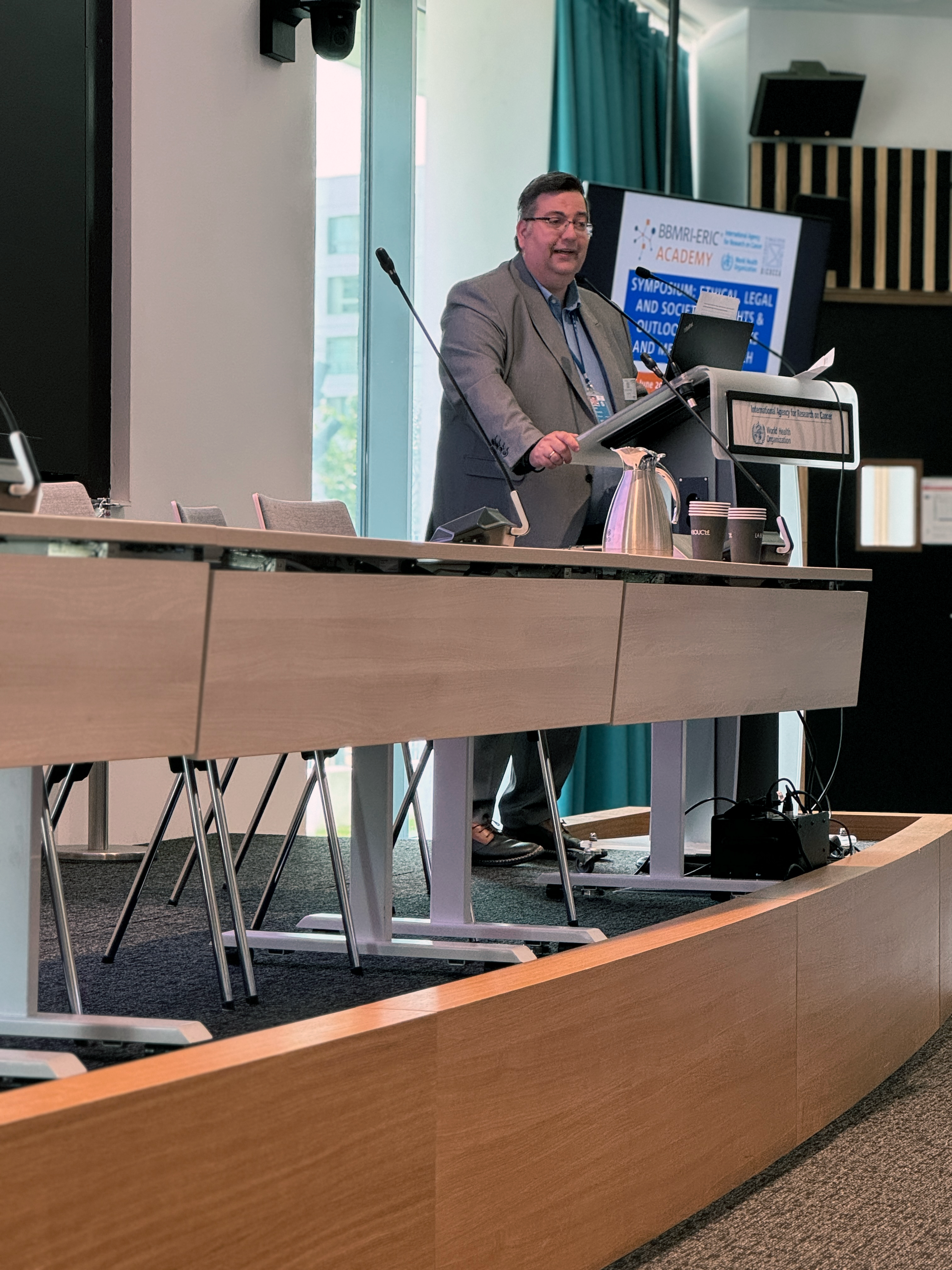
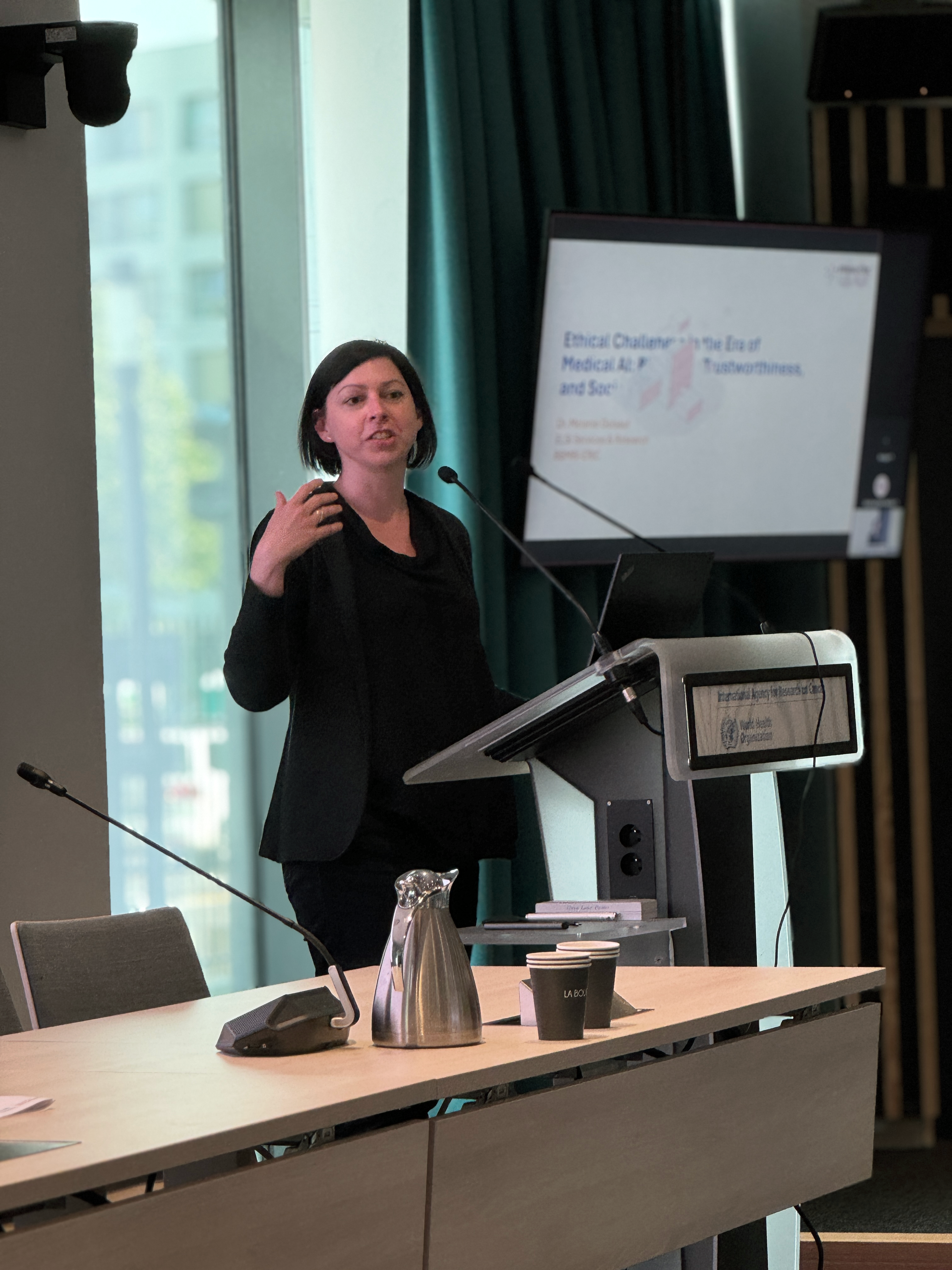
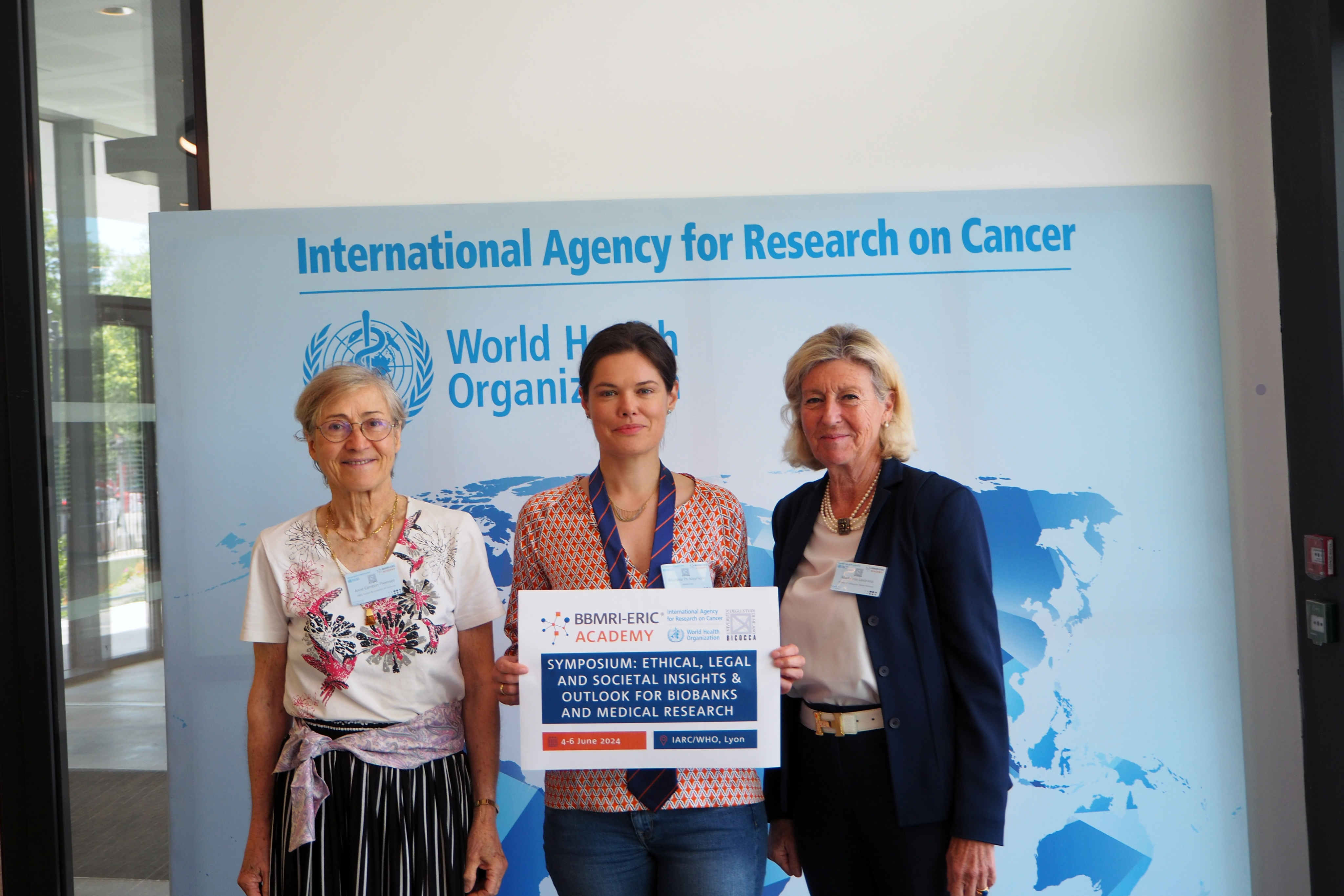
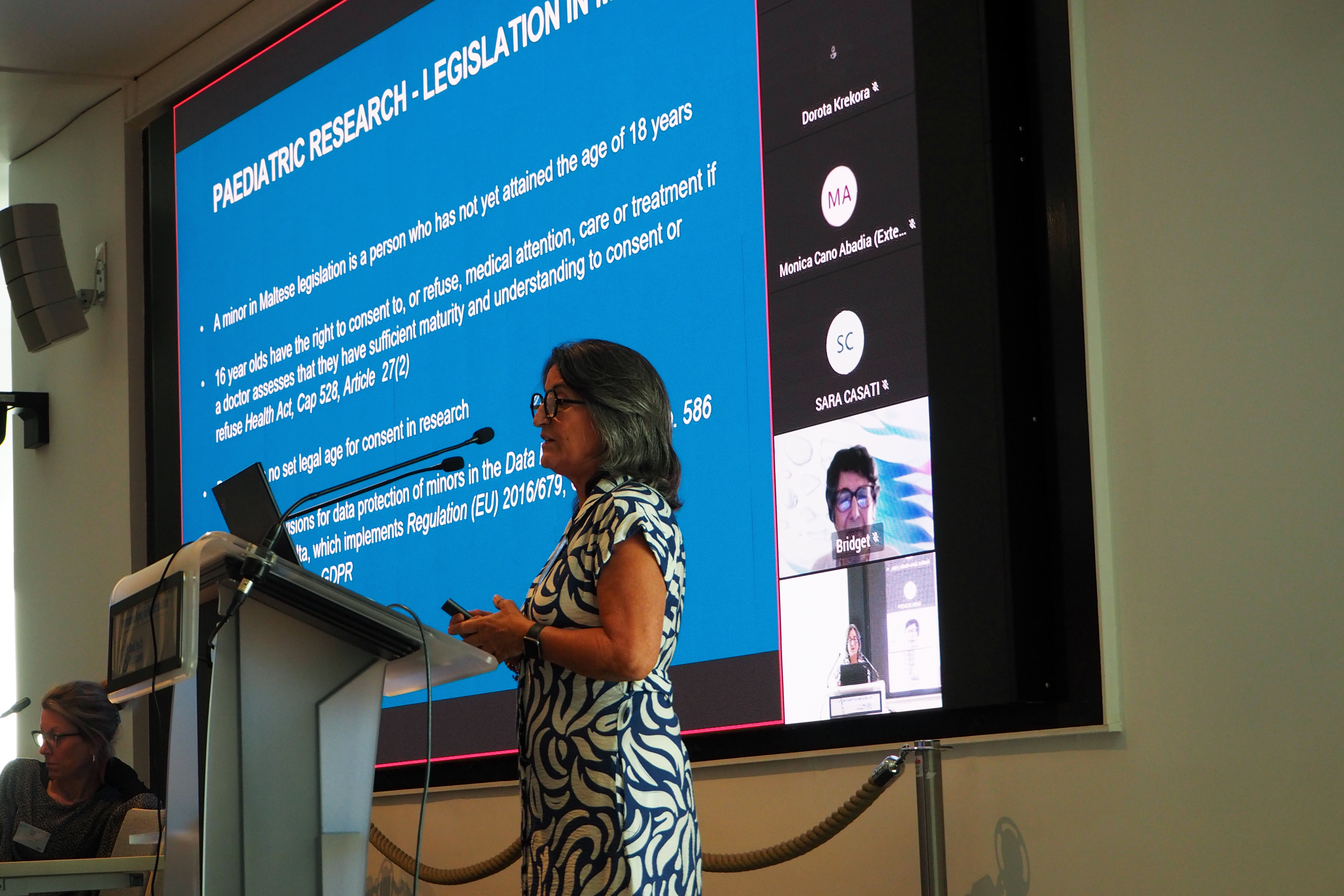
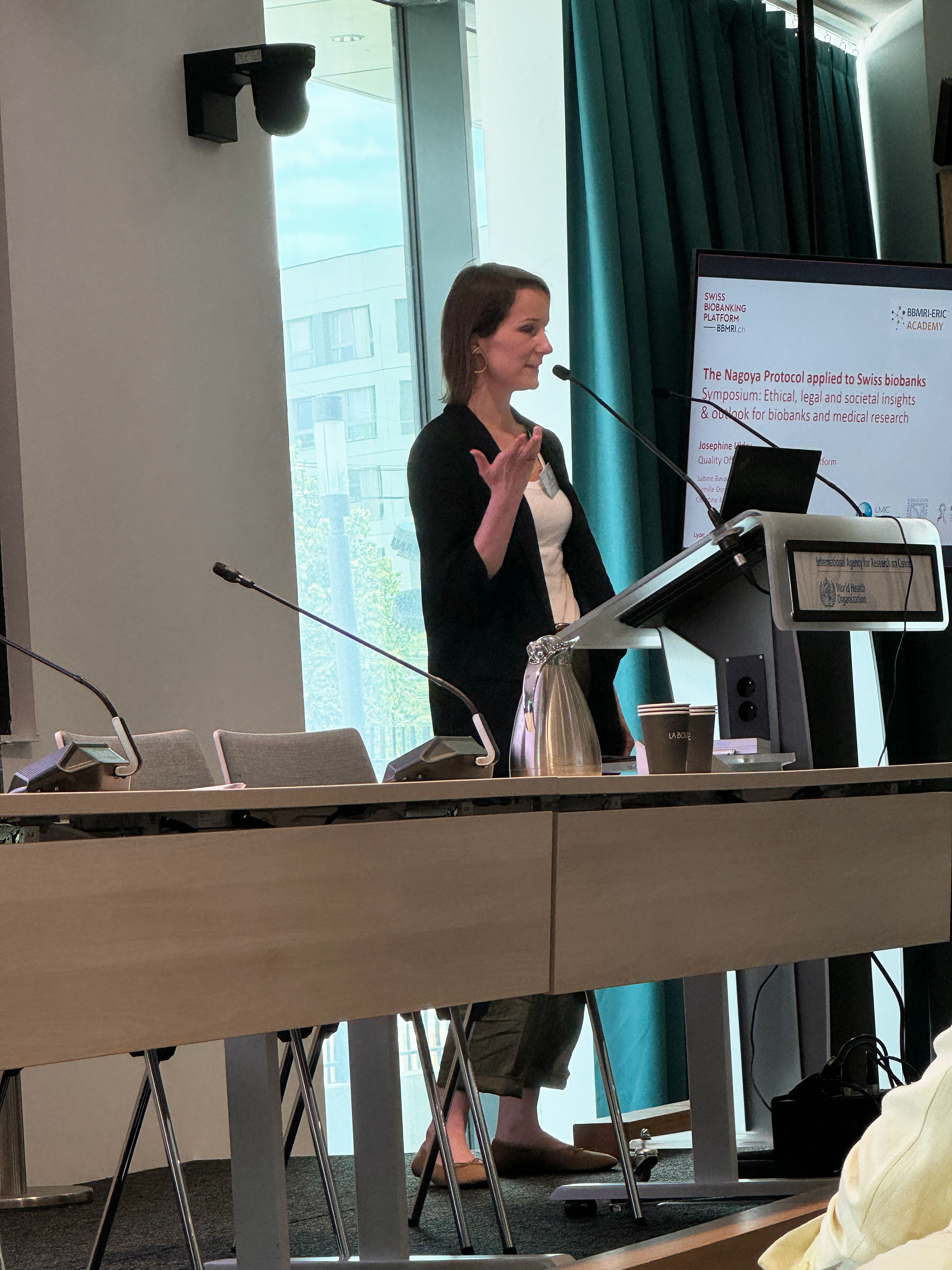
Keynotes
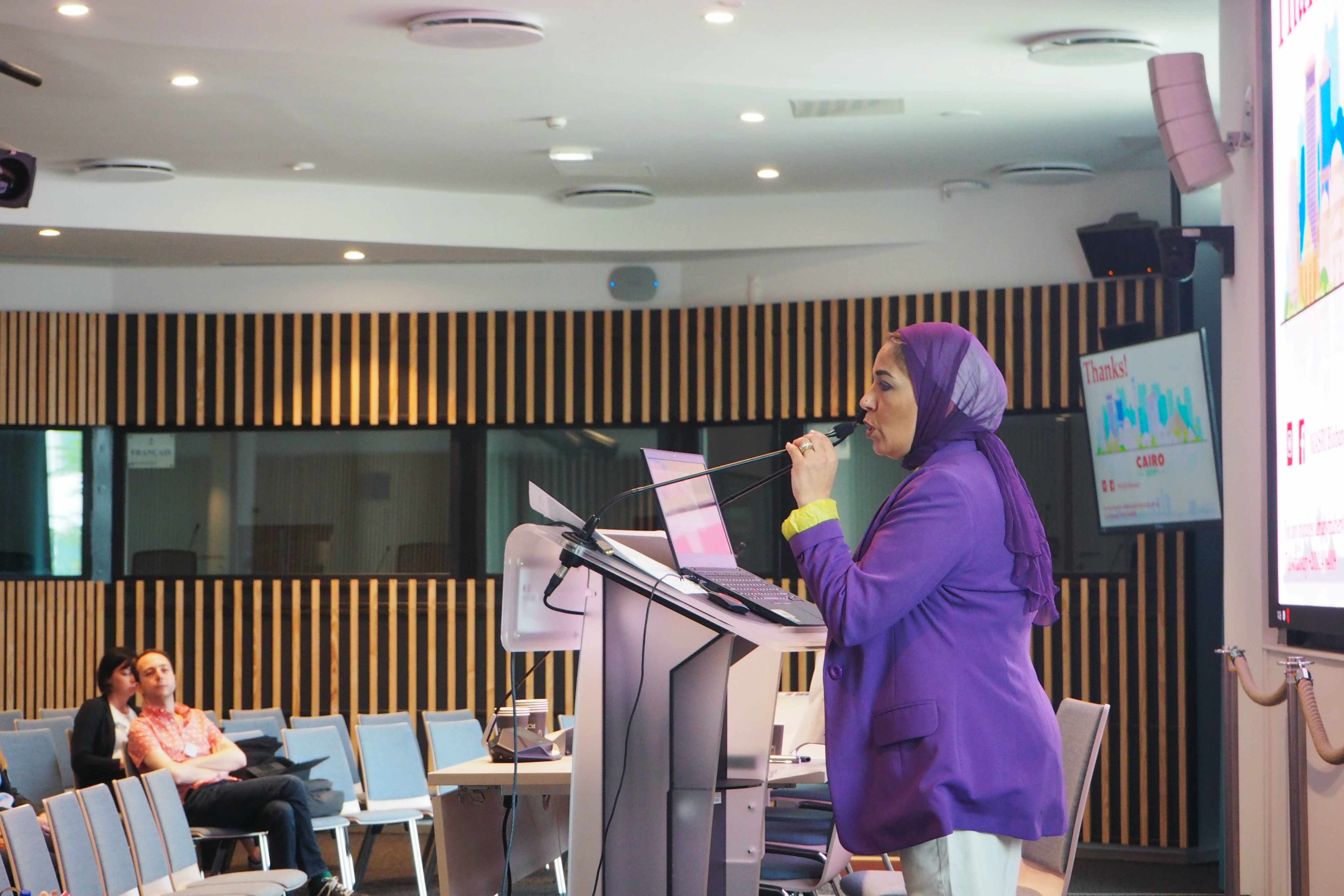
Biobank Advancement in Egypt – Medical Ethical Evolution
Author: Amany Maher (MASRI)
Egypt has made significant strides in establishing and developing biobanks, driven by collaborative efforts between government institutions, research organisations, and healthcare facilities. The Egyptian government has recognized the importance of biobanking and has provided support for infrastructure and regulatory frameworks, leading to the creation of several biobanks across the country. These advancements in biobanking have had a substantial impact on medical research and the development of personalised healthcare solutions in Egypt. The establishment of the Egyptian Genome project, in collaboration with the Academy of Scientific Research and Technology, aims to position Egypt at the forefront of personalised medicine and gene therapy. However, the growth of biobanks has also raised important ethical considerations that must be addressed.
Egypt's regulatory framework, including the Clinical Research Law and Data Protection Law, plays a pivotal role in ensuring compliance and protecting patients and research participants. Ethical principles, such as informed consent, confidentiality, and data security, are central to the operation of Egyptian biobanks. To further strengthen biobanking practices, Egypt has established the Egyptian Biobank Alliance (EBA), a joint network among national biobanks, which aims to create a research platform for new medicines. The benefits of such biobank networks include increased sample size and diversity, harmonisation of activities, and improved efficiency and cost-effectiveness. Looking ahead, the future of biobanking in Egypt holds promise for continued advancements in medical research, personalized healthcare, and ethical practices. Through collaborative efforts and adherence to ethical principles, Egypt has positioned itself as a key player in the global biobanking community, contributing to the betterment of healthcare and scientific knowledge.
“Previously this month, I attended a marvellous workshop organised between BBMRI and IARC. I had a great time meeting colleagues from Europe learning about different aspects in ELSI and to hear about their efforts in Biobank science.
"I was happy to present & highlight the progress of Egyptian Biobanks and share the news of construction of Egyptian biobanks alliance.”
Amany Maher (MASRI) - Keynote Speaker
IARC's Experiences with Ethics over the Last Decade
Author: Chiara Scoccianti (IARC/WHO)
IARC/WHO is a sponsor of research as well as a practitioner, and thus has a duty to show leadership in ensuring that its studies are beyond ethical reproach. Research at IARC/WHO relates to public health with epidemiology as its core discipline. There is well documented agreement that epidemiological studies involving patients or participants from healthy populations should receive the same rigour of ethical review as any clinical study.
The major role of IARC/WHO is the assurance to the international community that whatever constitutes ethical approval, transparently demonstrates the fundamental principles of doing no harm, respect, beneficence and justice. This presentation will provide a series of examples from the IARC/WHO studies over the last ten years, the ethical challenges that have emerged and the ways in which they have been successfully addressed.
“All the Data from Everywhere all at Once”: Visions and Practicalities in Data Integration
Author: Klaus Høyer (University of Copenhagen)
On March 30th, The Economist had a special issue on data and artificial intelligence (AI) in healthcare. It was not the first, and will probably not be the last. When outlining what it takes to realise the proclaimed potential of AI, the issue featured a familiar trope, namely the dream of having “All the data from everywhere all at once” (p. 10). The particular formulation has an uncanny resemblance to the award-winning movie ‘Everything Everywhere All at Once’ (2022) about a pressured woman feeling forced to tackle everything everywhere all at once, and who is sucked into an ontological multiplicity where what happens in one world has life and death implications in other worlds, and where powerful forces struggle for ultimate control. In this talk, I will use the trope of having all data available in total compression of time and distance.
I will suggest that it too comes about as a result of powerful forces, and that it can indeed lead to a form of ontological multiplicity, albeit of a very different nature from that suggested in the movie. Drawing on my recent book (Data Paradoxes.
The Politics of Intensified Data Sourcing in Contemporary Healthcare, MIT Press 2023), I describe the impact and effect of data integration initiatives over the past decades in Denmark and relate these experiences to current cross-border data initiatives. My key message will be that we may need to put limits to certain forms of integration to make others work according to purpose.
“This meeting furthermore showed the value of these exchanges for both developing ELSI scholarship and for ensuring social robustness of contemporary biobanking.”
Klaus Hoyer (University of Kopenhagen) - Keynote Speaker
The WHO Office of Bioethics: Projects and Priorities
Author: Andreas Alois Reis (WHO)
The World Health Organization (WHO) Health Ethics and Governance Unit provides a focal point for the examination of ethical issues raised by activities throughout the WHO, as well as supporting Member States in addressing emerging ethical issues. This includes a range of global bioethics topics from public health surveillance to developments in genomics, and from research with human beings to fair access to health services.
This unit’s work is particularly important in the context of contemporary health challenges and raises and addresses difficult questions in areas such as resource allocation, new technologies, decision-making in clinical care and public health. The unit’s work consists of developing normative guidance, producing ethics tools and resources, capacity building, ethical oversight on WHO’s research projects and public health interventions, and hosting the secretariat of the biennial Global Summit of National Ethics/Bioethics Committees. The presentation will provide an overview of these functions and present the recent work of the unit and its global impact.
How Has Oncology Practice Changed Over the Pandemic?
Author: Brenda Boegard (University of Lausanne)
This presentation will elaborate how oncology care and research was adapted during the COVID-19 pandemic in the Metropole of Lyon (France), including the lasting innovations that came out of the crisis. The research method involved 22 semi-structured qualitative interviews of healthcare professionals, managers, and researchers in the Lyon, France region coming from both public and private academic hospitals. The interviews took place from February 2021-December 2022 in order to assess the long-term adaptations and innovations in cancer care organisation in the post-COVID era, as cancer care was severely affected during the pandemic.
The main results show adaptations and innovations in 1) new processes and resources to facilitate disciplinary and interdisciplinary work; 2) harmonisation and streamlining of patient journeys. Our analysis utilised the capabilities approach, an interdisciplinary social sciences approach that focuses on the capabilities of persons to be and to do, to elaborate the conditions by which local actors were able to be agile, to adapt and to innovate in spite of the healthcare emergency and in coherence with their professional and personal values.
Bringing Divergence into the Room: The Use of Seemingly Unconnected Fields to Promote a Common Understanding
Author: Mat Clum (Royal Academy of the Arts)
This presentation is based on the experiences of the events created over the last decade through TickbirdandRhino, an organisation that takes big ideas and make them accessible in different ways – from simple socials and salon-like evenings to workshops and collaborations. This approach is grounded in the concept of performative science, a methodology that dissolves the boundaries between researcher, observer and system, giving all participants parity and providing equal access to, and impact upon, the results.
Eliminating the boundaries between disciplines and using a common audio-visual language to bring participants together creates greater potential for emergent knowledge, to express itself in ways that generate ideas from multiple perspectives and return useful results that are not necessarily contingent upon previously held knowledge.
Crucially, we believe that the creativity and imagination used by artists makes them particularly adept at inventive problem-solving, and their experience working across disciplines gives them the unique ability to explore a wider landscape of potential solutions to any problem.
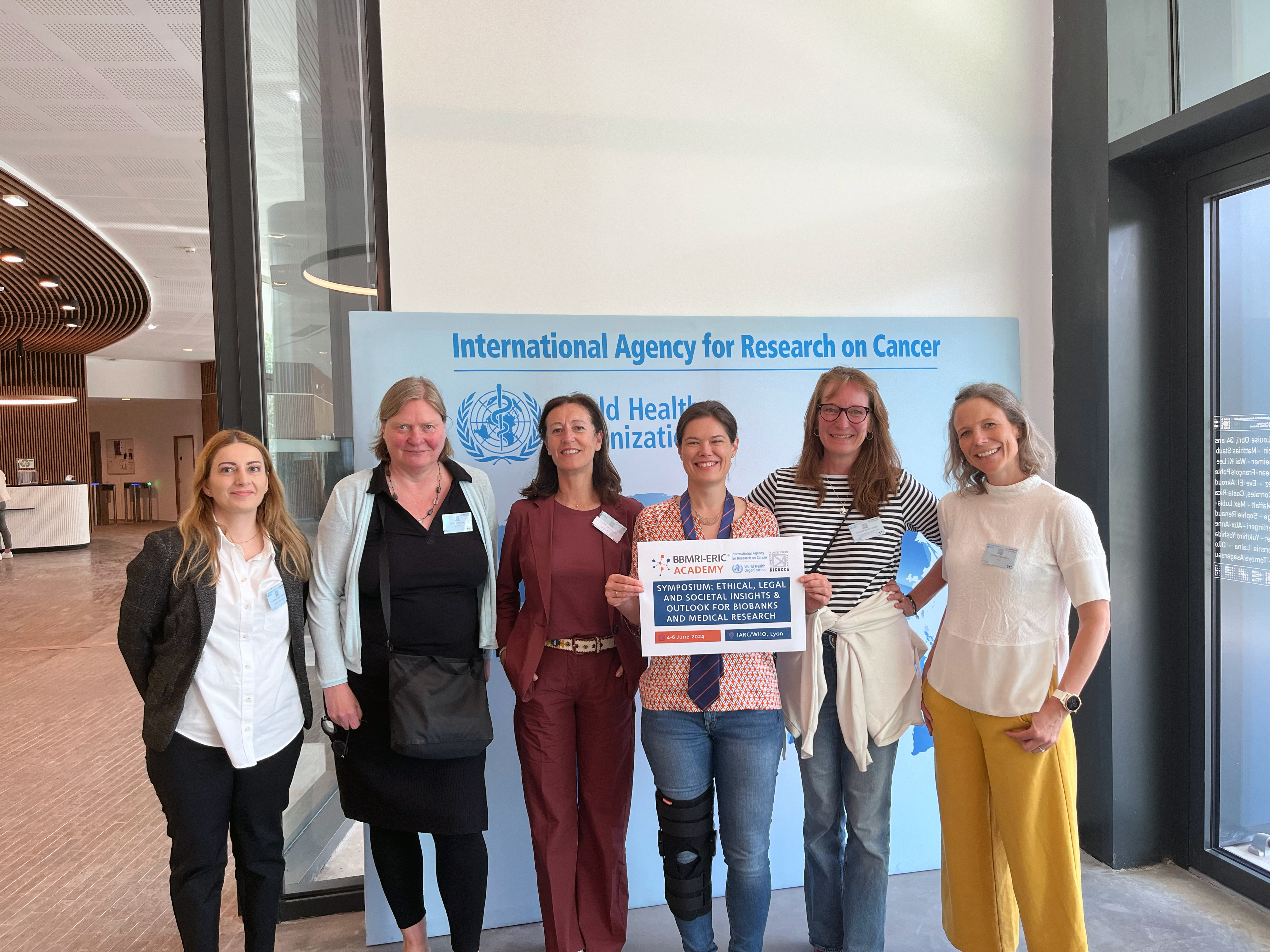
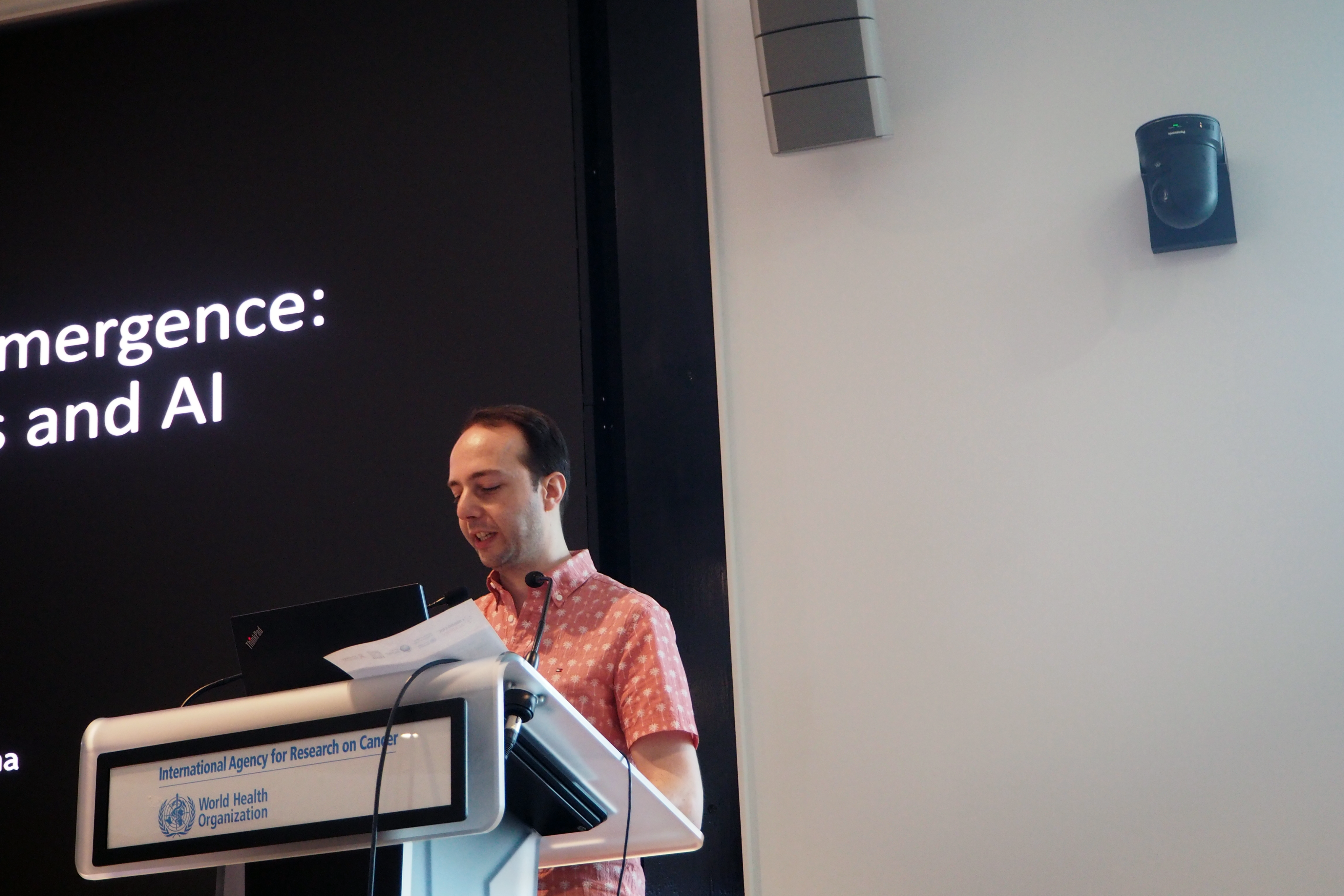
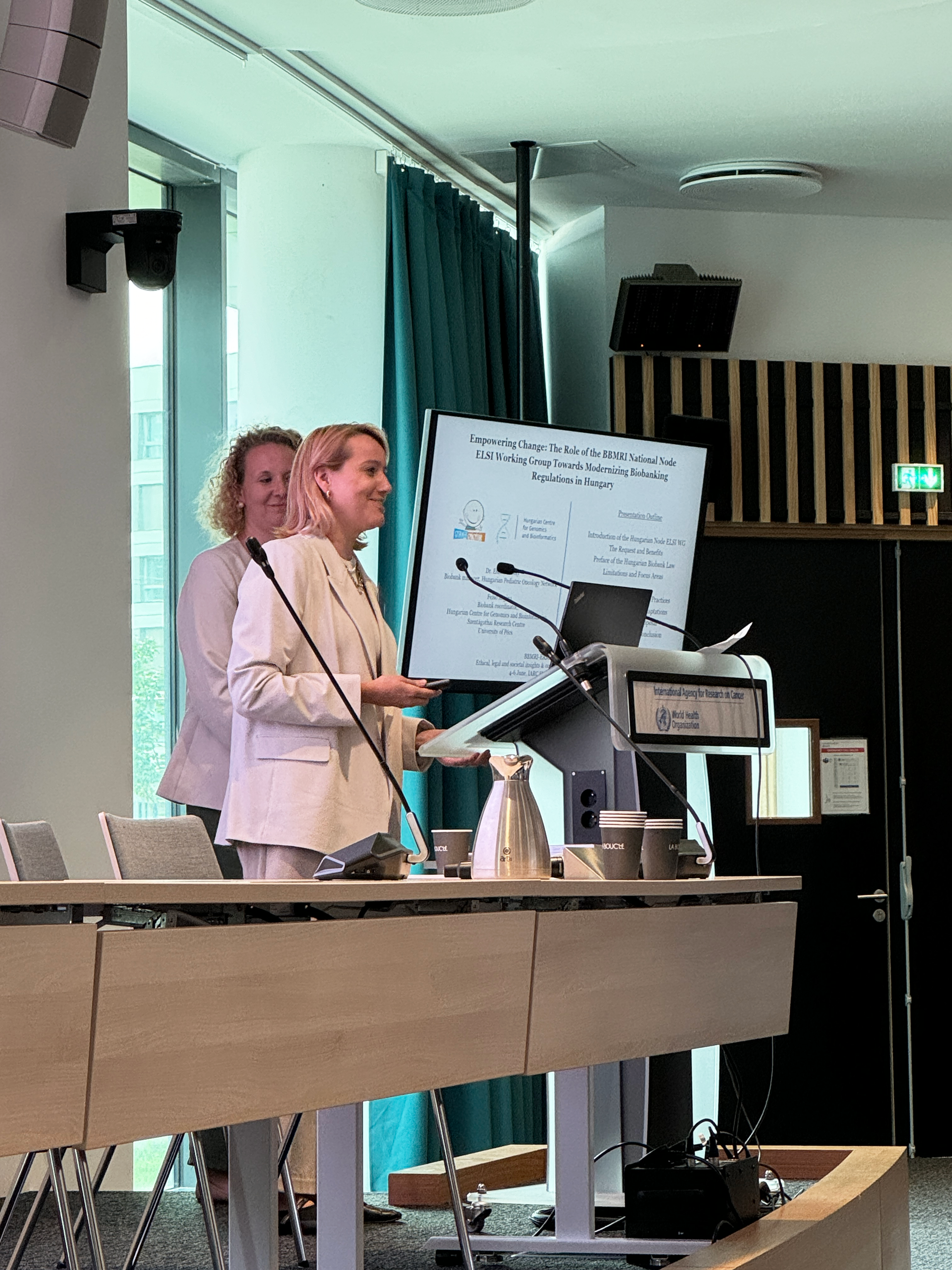
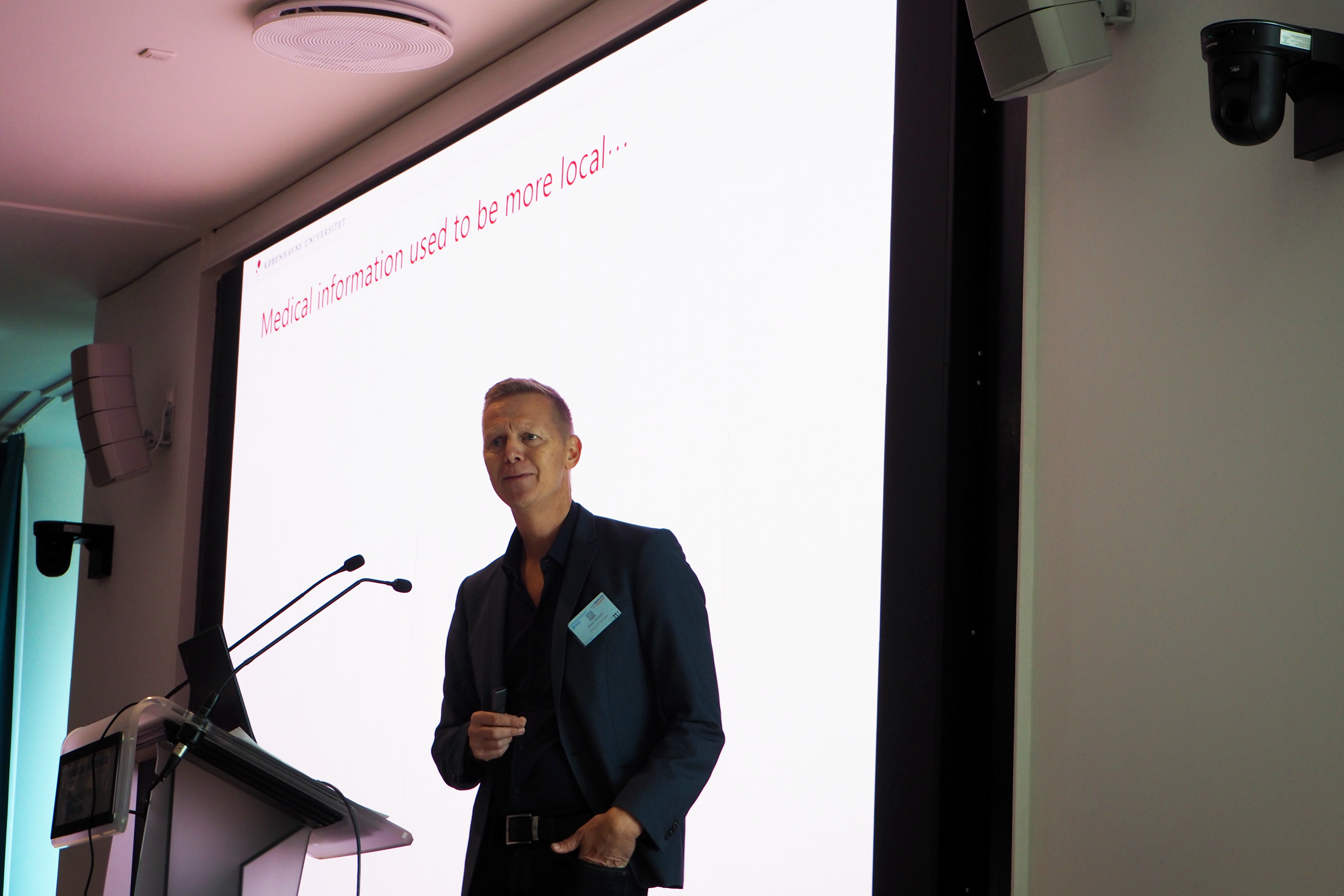
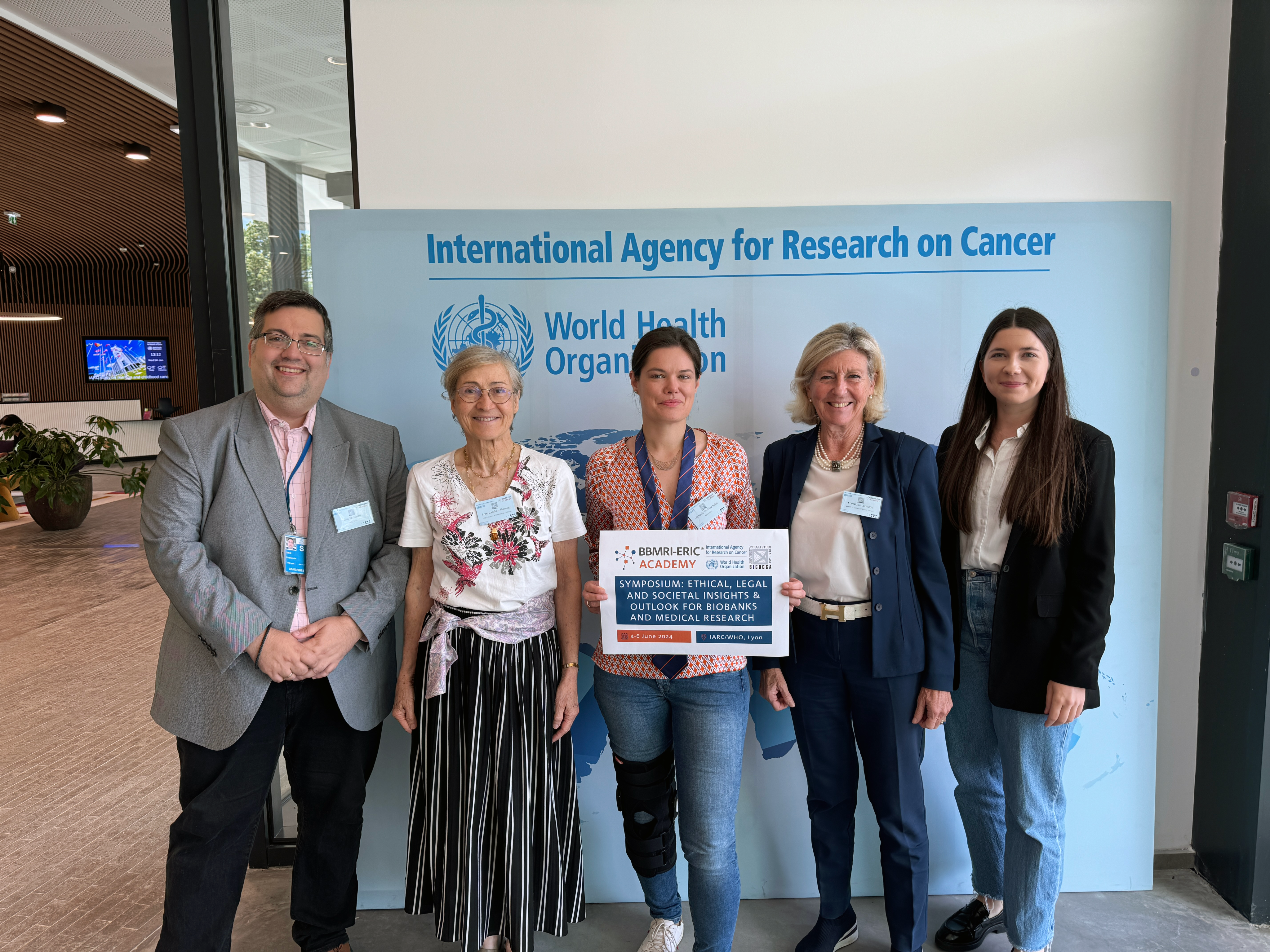
“The session 'From Gut to Space' opened up a new window of thematics for many of the attendees. Key learnings from this session were: a. IARC’s Ethics Committees’ vision to achieve their goal of standardisation of data protection practices. b. The deep, but somehow unexplored, area of ethical and legal implications of microbiome research. My takeaway: From papers to podiums – Sharing research projects with wider audiences makes the projects alive and is beneficial to both the researcher and the audience. Thus, the need for more symposiums of this kind.”
Erdina Ene (BBMRI-ERIC) - Session Chair
“Key highlight for me has been the interest in AI within the broader community of ELSI scholars and biobankers, especially the need for understanding where we and the biobanks are headed.
"Considering the expertise needed to make sense of the R&D in this domain, looking at components is less than ideal to understand the emergent character of AI, let alone make a significant change. My takeaway: Break the silos, combine the expertise!”
Kaya Akyüz (BBMRI-ERIC) - Speaker
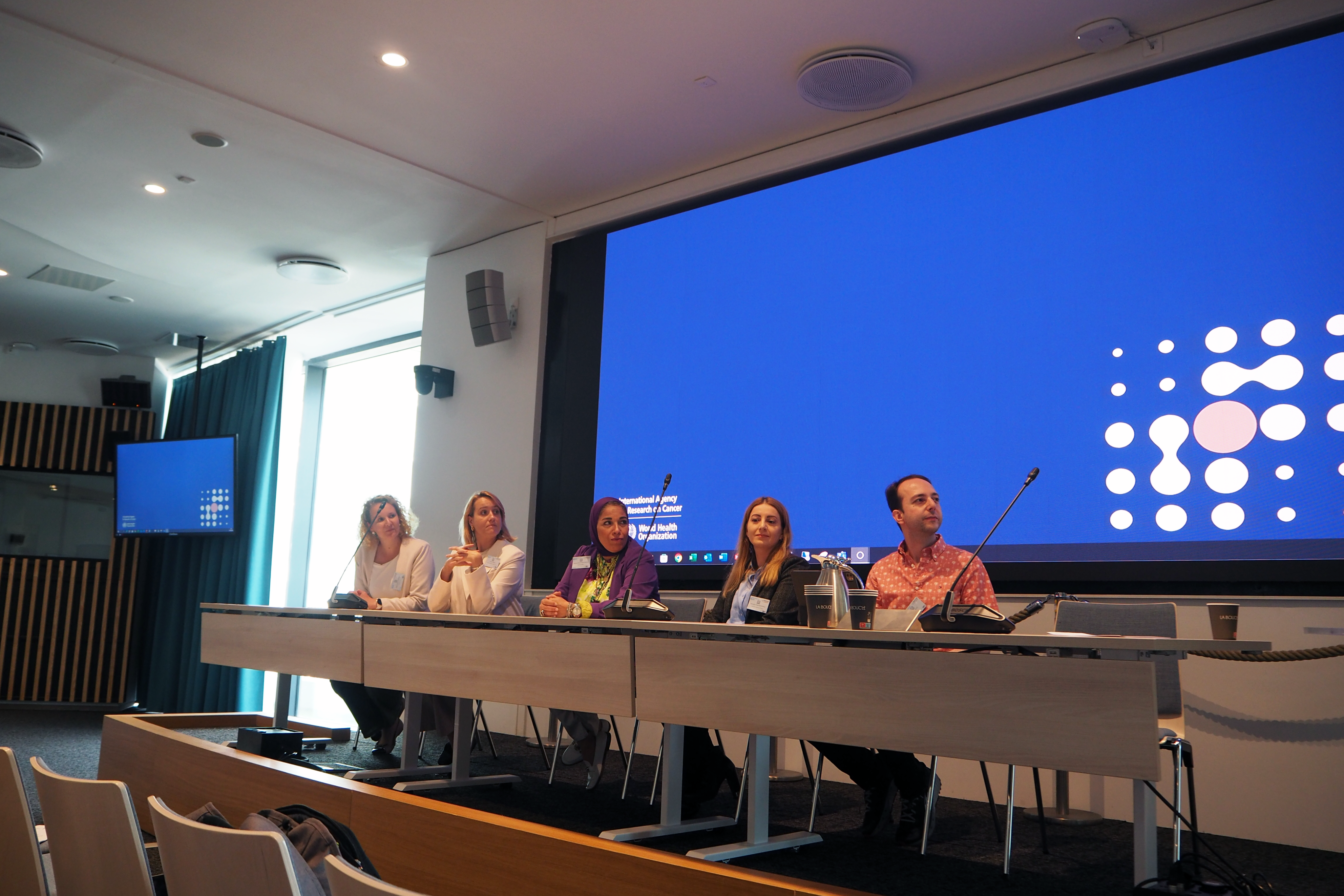
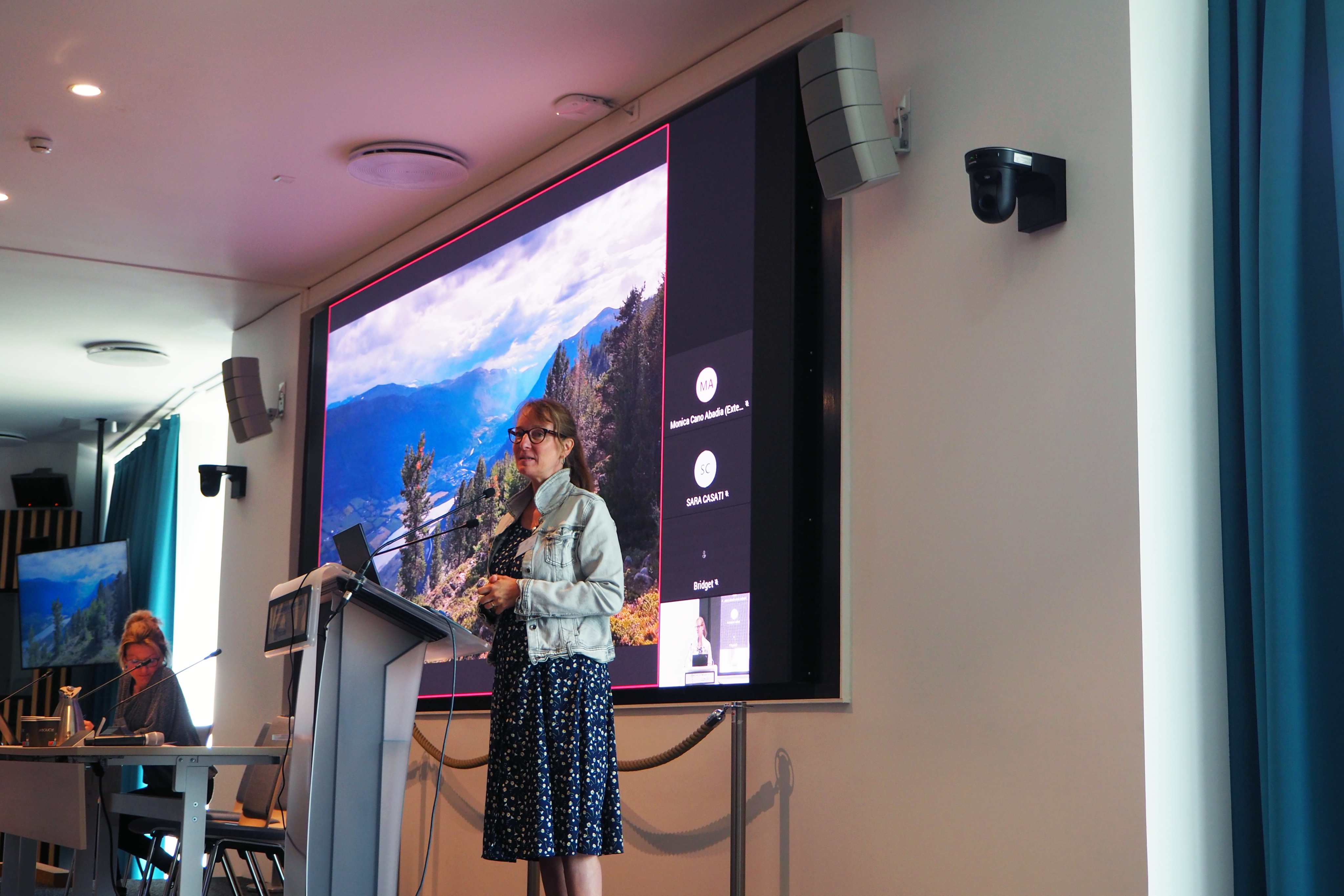
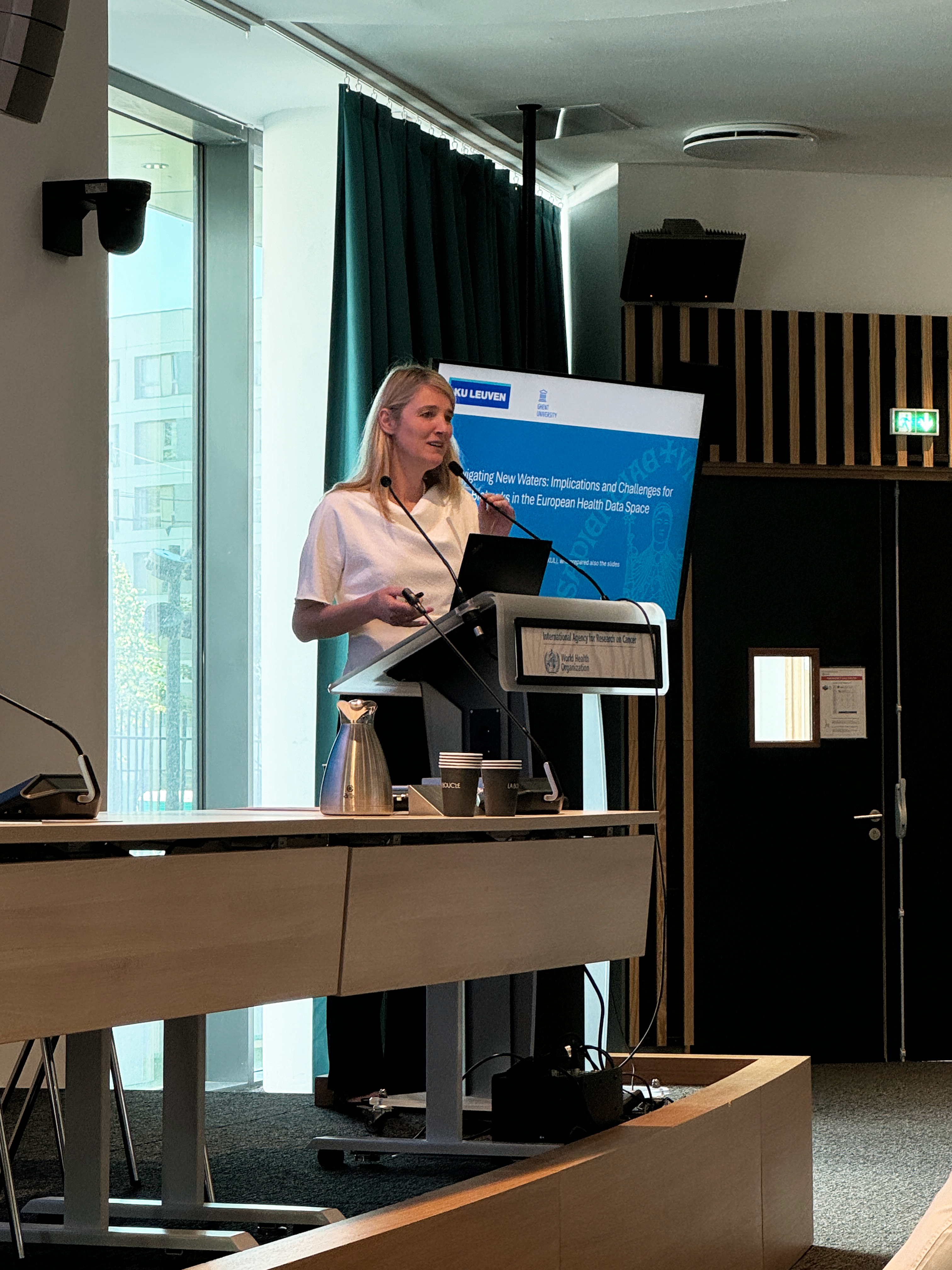
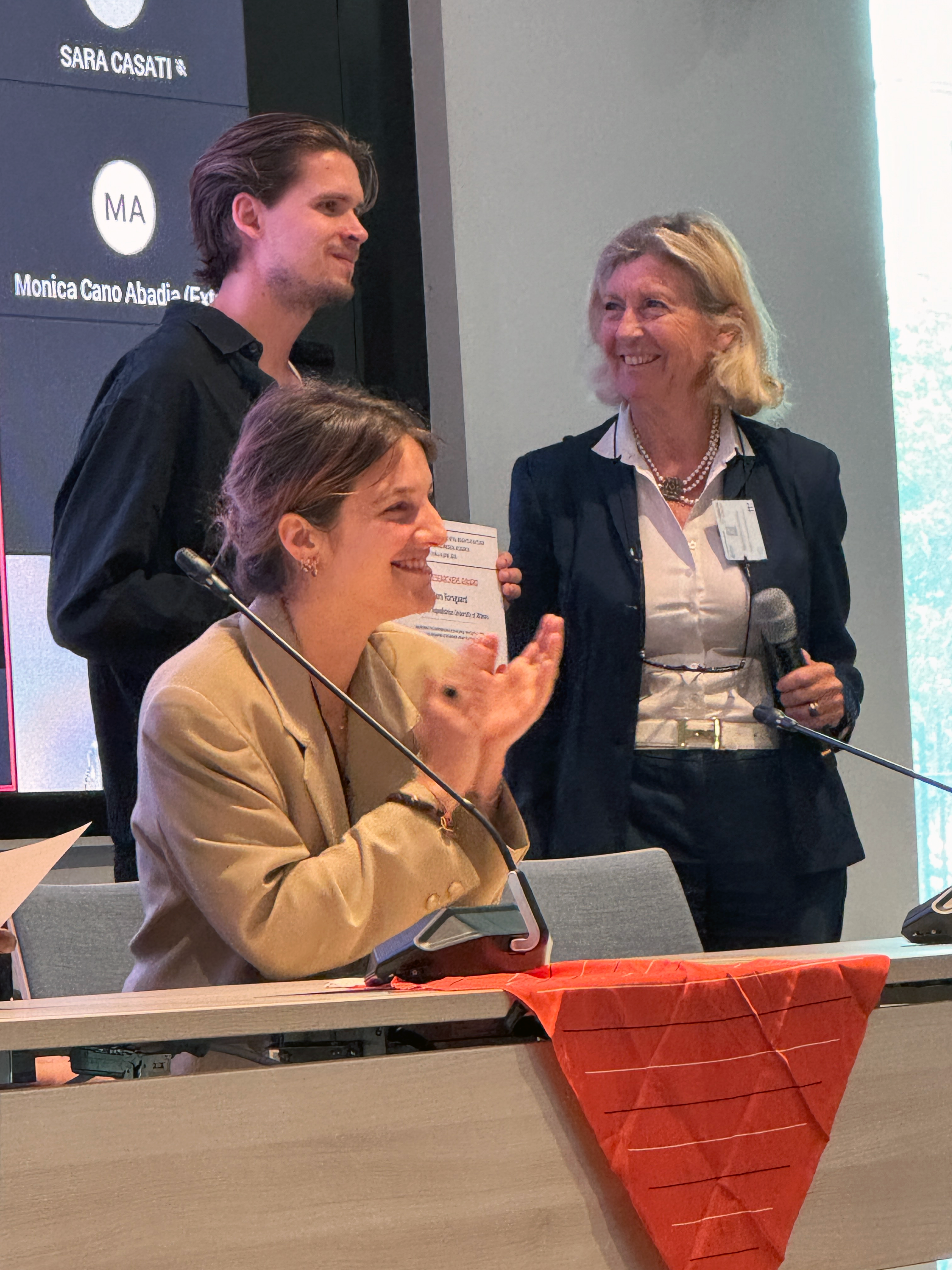
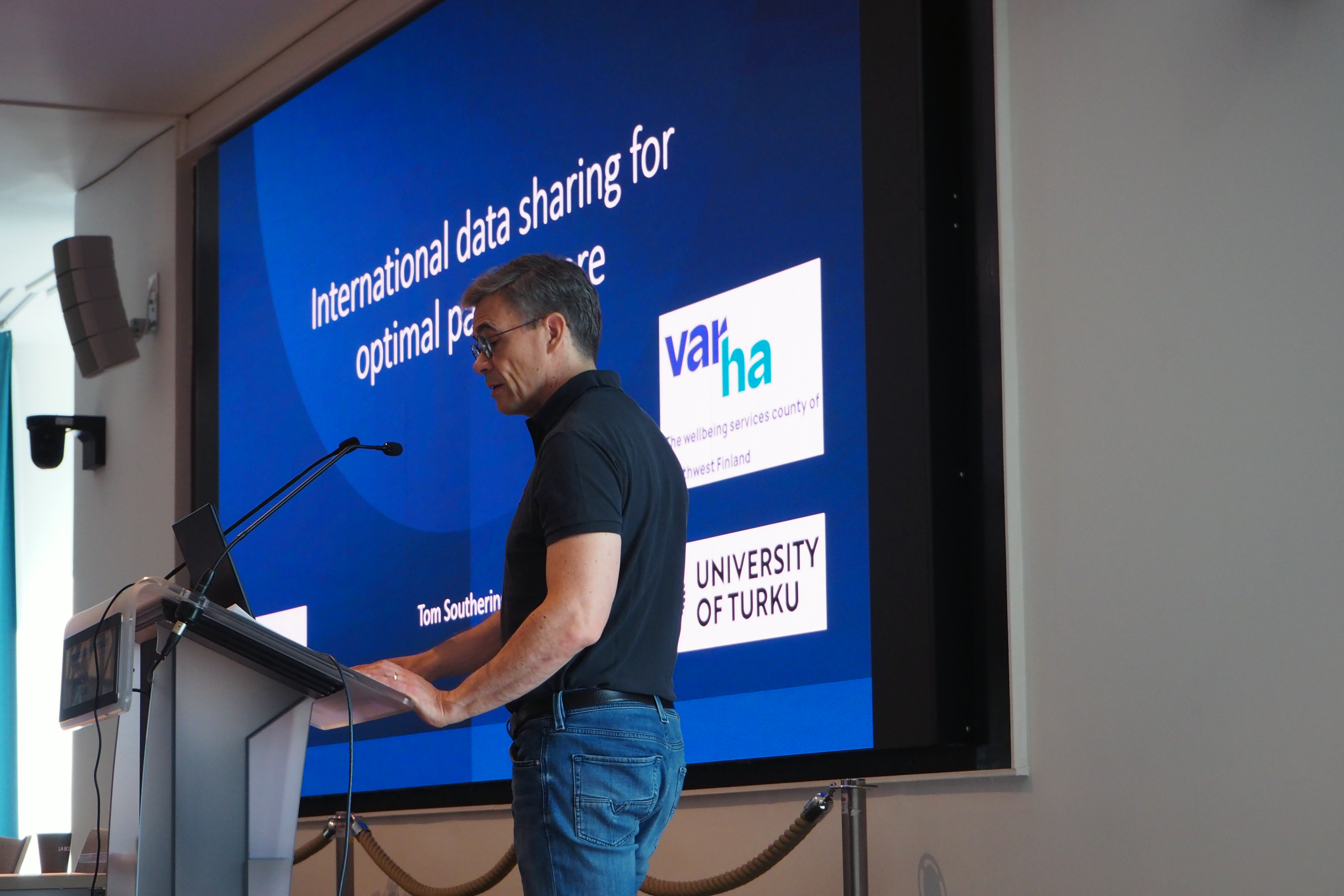
Young Researchers Awards
The event concluded with the Young Researchers Awards, celebrating the innovative contributions of emerging talents in the field. This recognition highlighted the importance of nurturing new talent while also emphasising the symposium's role in creating a collaborative and supportive environment for the next generation of researchers.
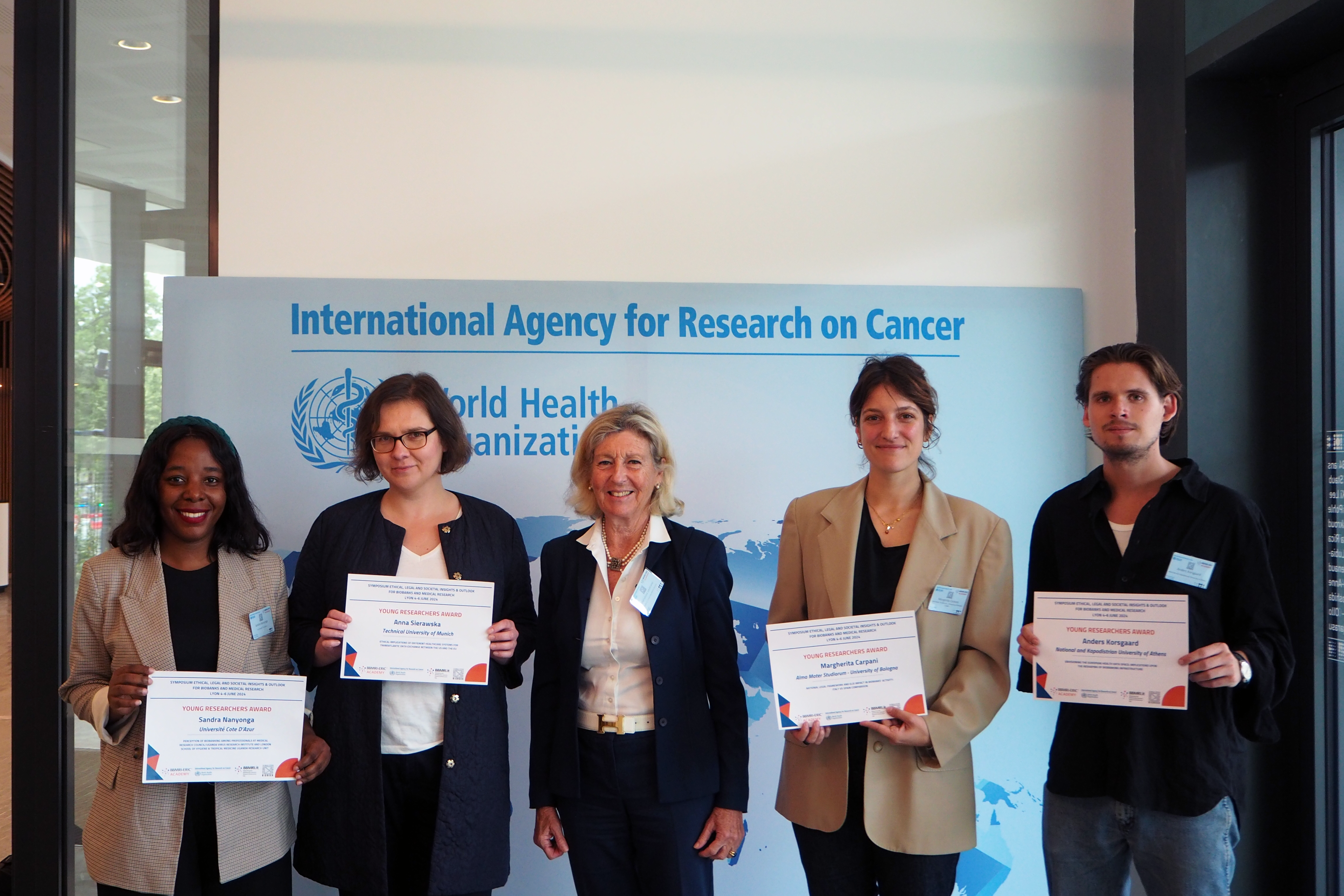
Envisioning the European Health Data Space: Implications upon the Reshaping of Biobanking Infrastructure
Author: Anders Korsgaard (National and Kapodistrian University of Athens)
The European Health Data Space (EHDS) is envisioned to establish a common framework for data sharing, aiming at capitalising on the imagined potential of a safe and secure cross-border exchange, use and re-use of health data. Visions for better health and biomedical research in Europe thus become key arguments in favour of sharing health data. Within this framework, biobanks and biobanking networks, like the BBMRI-ERIC, are endorsed as key infrastructures with expectations to generate value through biomedical research, made possible by the creation, storing, and sharing of samples and data. However, reshaping biobanking to fit under the EHDS could be translated into tension with old practices and arrangements.
Being attentive to visions in data practices and research infrastructures means to explore how they lead to sociotechnical rearrangements.
Pooling of health data for research in many ways rests on the infrastructuring of biobanks, i.e. building enabling environments for quality data sharing. It therefore becomes important to look at how the EHDS affects the infrastructure of biobanks (and BBMRI-ERIC). Looking into infrastructuring means bringing the practices of a set of actors – ranging from researchers, up to policy makers - into one socio-technical network. The paper will present interview data from actors connected with the research infrastructure of BBMRI-ERIC in Greece and Norway, focusing on the uses of visions specifically in the discussions surrounding biobanking, while providing preliminary findings regarding the ways the EHDS visions are being contested and/or stabilized and how the actors themselves envision health data sharing going forward.
“My talk focused on the envisioning of the European Health Data Space and its potential implications upon the reshaping of biobanking infrastructures in highlighting some preliminary findings from my ongoing case study in Greece and Norway.
The conference, with its various topical sections where a plurality of perspectives and expertise across countries was shared, provided me with a moment to reflect more thoroughly on the interplay between policy, practice, and experience in biobanking and health data sharing; particularly on how the enabling of cross-border health data sharing is indeed multifaceted - and that health data sharing, as well as research and biomedical practice, can take on local forms in response to what local infrastructures enable.”
Anders Korsgaard (National and Kapodistrian University of Athens) - Recipient of the Young Researcher Award
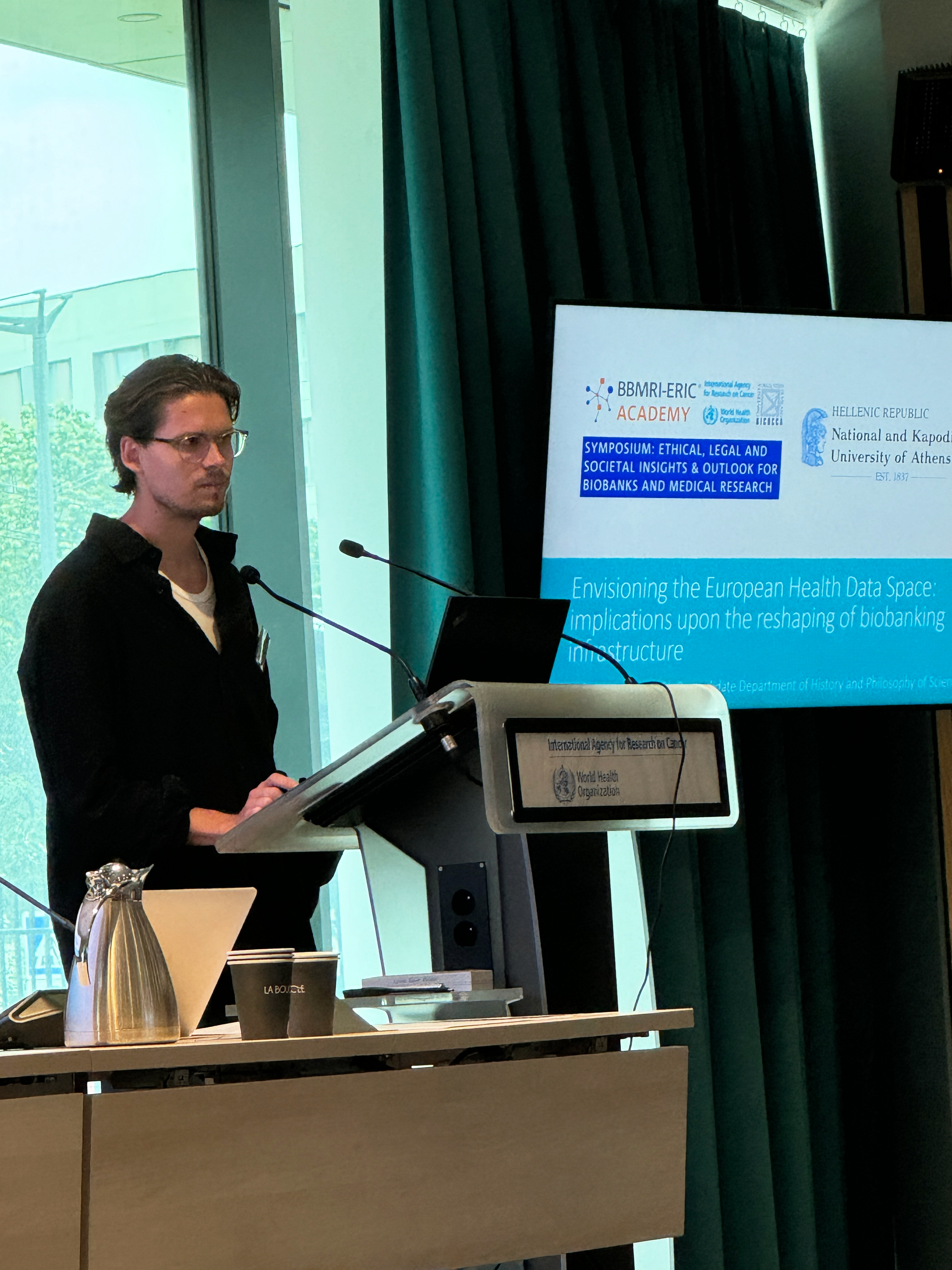

Perception of Biobanking among Professionals at Medical Research Council/Uganda Virus Research Institute and London School of Hygiene & Tropical Medicine Uganda Research Unit
Author: Sandra Nanyonga (Université Cote D'Azur)
Introduction: Biobanking is crucial for medical research, yet there is a lack of understanding among professionals involved in the process. This study aims to explore the perceptions of biobanking among sample collectors, transporters, laboratory staff, and biobank personnel. Objective: To investigate the perceptions of biobanking among professionals at Medical Research Council/Uganda Virus Research Institute and London School of Hygiene & Tropical Medicine Uganda Research Unit.
Methodology: The study examines the views of sample collectors, transporters, laboratory staff, and biobank personnel through structured interviews and surveys. Results: While biobanking is recognised, there is a lack of standardised knowledge among professionals. Efforts are needed to ensure transparency and standardisation within biobanking activities to facilitate stronger engagement, commitment, and advocacy with stakeholders. Conclusion: This research fills a significant knowledge gap within the biobanking field and underscores the necessity for transparent and standardised biobanking practices to manage biobanks effectively.
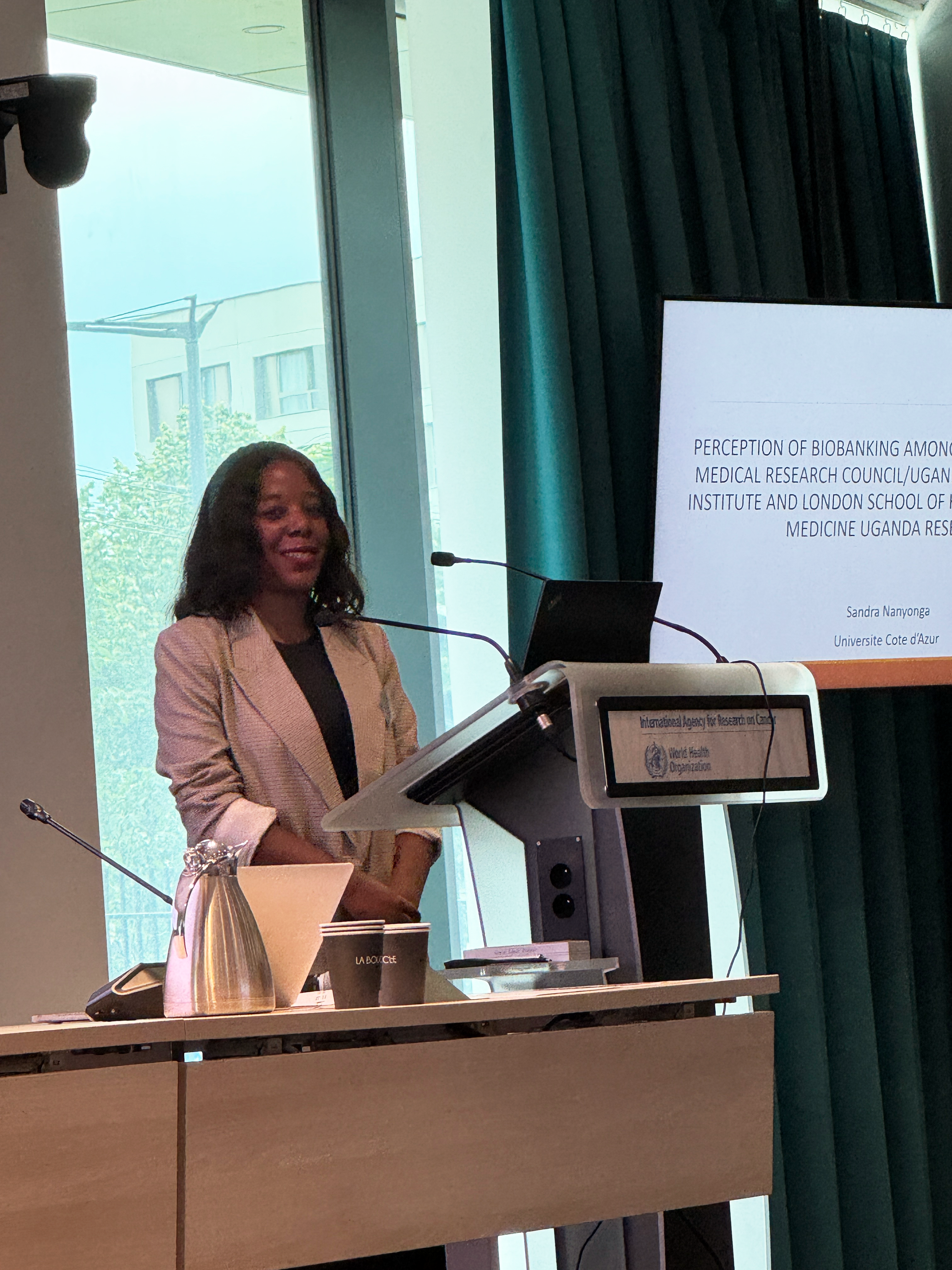
“The symposium provided an exceptional platform to engage with leading experts and delve into the ELSI issues surrounding biobanking research. Presenting about the perception of biobanking among professionals at MRC/UVRI & LSHTM was particularly gratifying due to the insightful feedback and discussions.”
Sandra Nanyonga (Université Cote D'Azur) - Recipient of the Young Researcher Award
Ethical Implications of Different Healthcare Systems for Transatlantic Data Exchange between the US and the EU
Author: Anna Sierawska (Technical University of Munich)
Transatlantic data sharing has a potential to significantly advance healthcare in the EU and the US, and globally. The strict data protection regulations (GDPR) in the EU have been identified as primary barrier hindering of sharing patient data between EU and US. The sluggish progress in data sharing partnerships is unethical as it impedes the development of better-informed therapies and treatments for patients on both continents. However, one aspect that is missing in this discussion is the significant difference in healthcare systems between those two countries, particularly concerning their private and public financing regulations, and overall access to healthcare.
While the European approach emphasises social solidarity and recognises healthcare as a fundamental right, the US one the other hand tends to favor individualistic and private insurance-based healthcare model. The principle of solidarity plays a key role in the sharing of patient data, as it is only by recognising collective, solidarity-based action the individual person can benefit. Public healthcare in the EU is an example of a solidarity-based approach that does not exist to the same extent in the US. The question arises as to how this solidarity-based incompatibility could be reflected in the sharing of patient data, which is based on similar solidarity-based concepts. The main focus of this project is to compare the EU and US healthcare systems and their impact on the type and quality on patients’ data sharing.
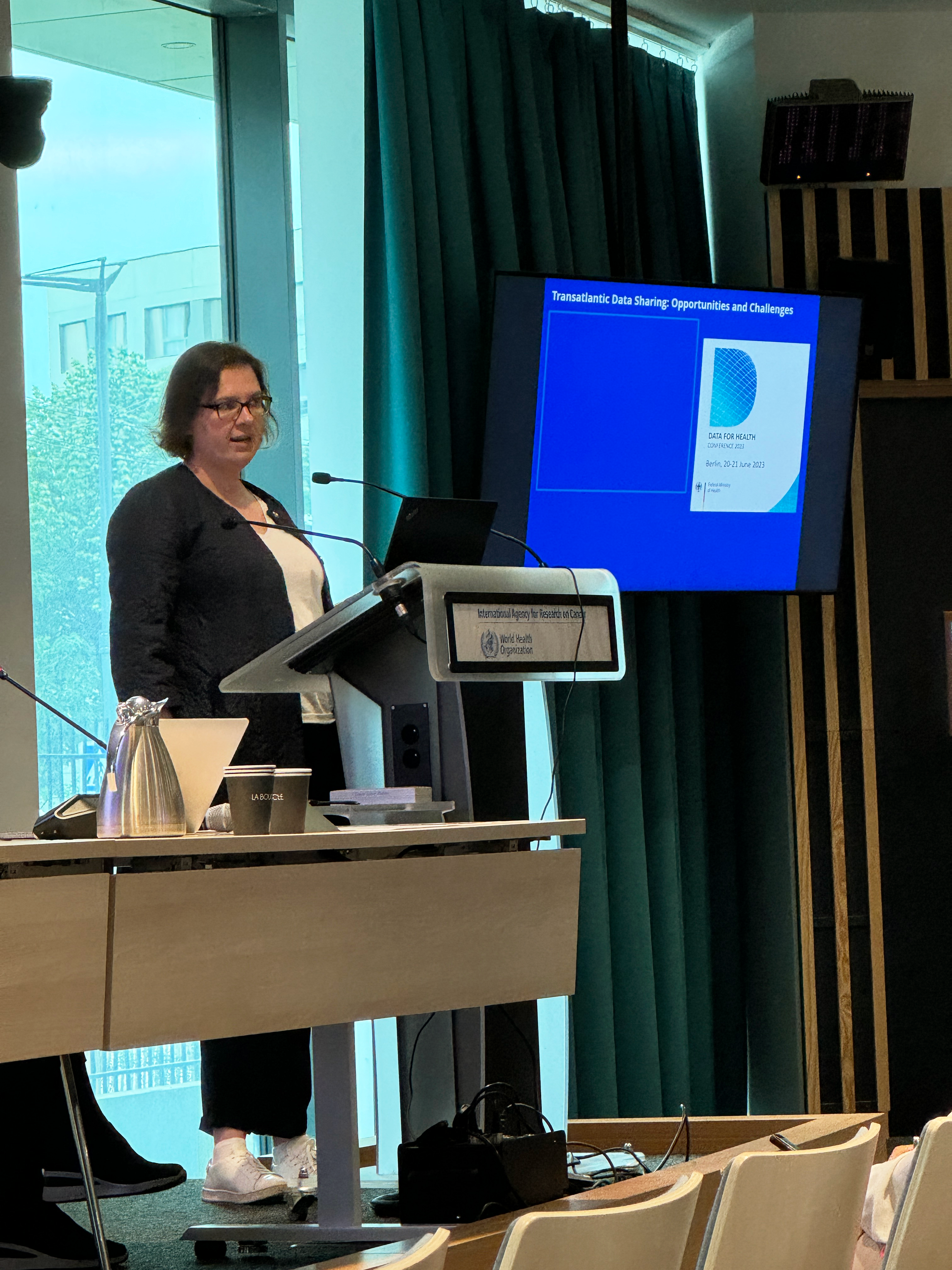
“The symposium provided an excellent opportunity to connect with fellow researchers and experts in the field of biobanks and to explore ethical issues in depth, particularly those related to AI and the European Health Data Space (EHDS). Presenting my research on the ethical implications of the different healthcare systems in transatlantic data sharing was incredibly rewarding, especially because of the valuable feedback I received on my project.”
Anna Sierawska (Technical University Munich) - Recipient of the Young Researcher Award
“My research is focusing on the comparison between the Spanish and Italian biobanks' system and ELSI approach, particularly analysing the laws of these two similar and still different countries and their differences in the management of sensitive data.
What I found most useful was the possibility to receive interesting inputs from the highest experts on biobanking across and outside Europe, thanks to the open and participated discussion that the symposium format provided and encouraged.”
Margherita Carpani (Alma Mater Studiorum - University of Bologna) - Recipient of the Young Researcher Award
